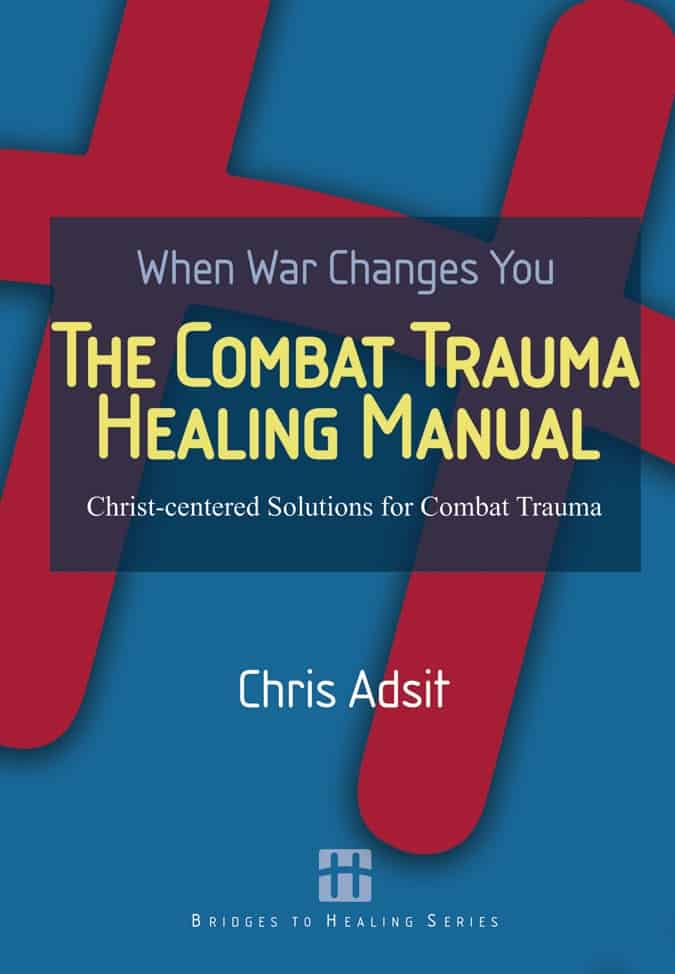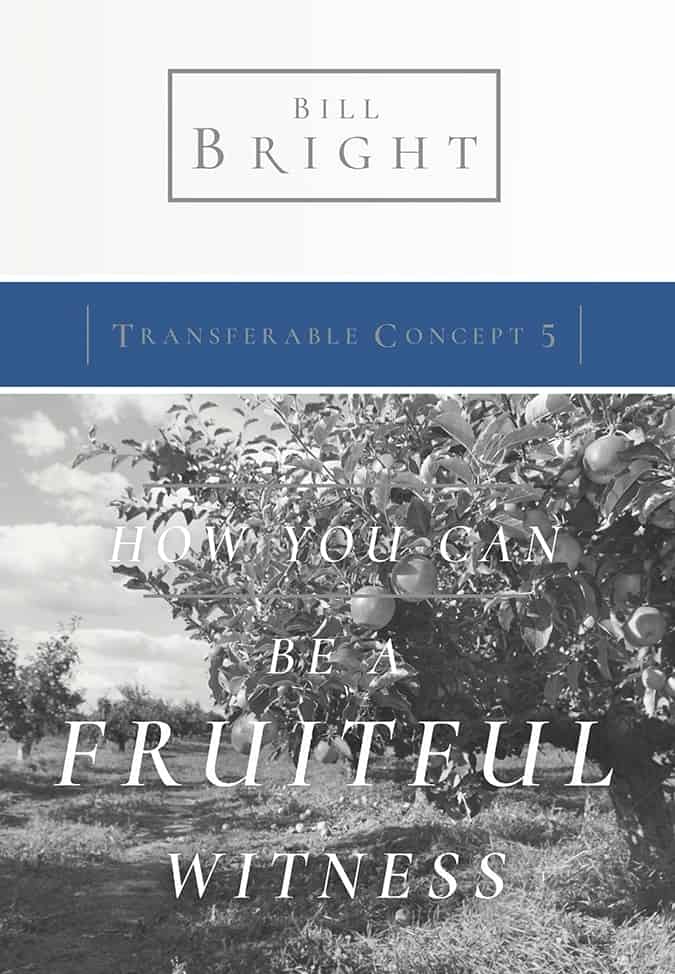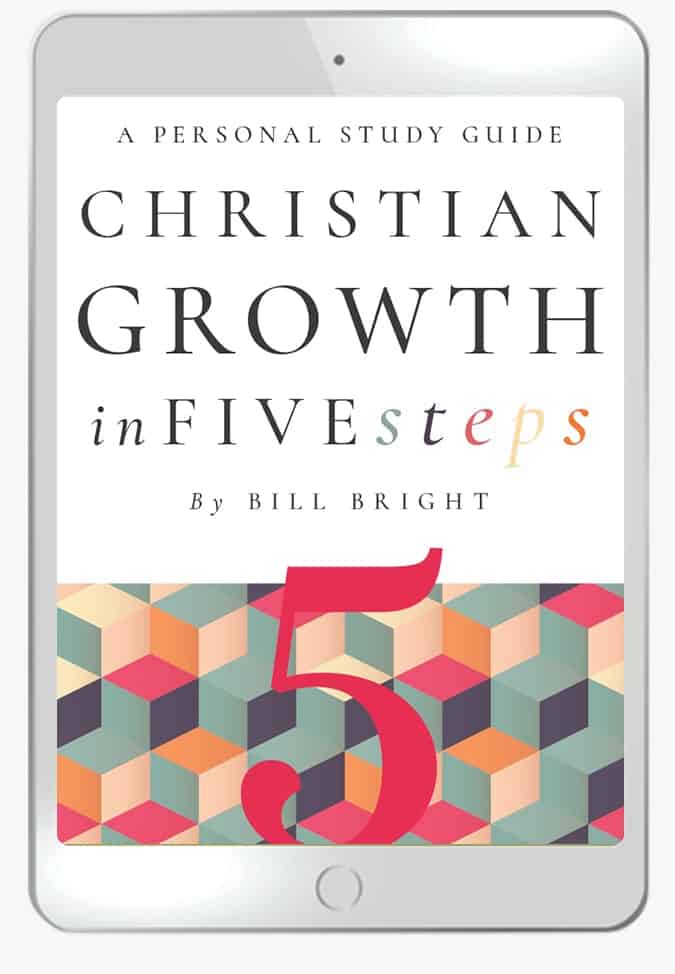
Twice a month you'll receive a simple connection practice to satisfy your soul in Jesus.

Available Now!

Colliding With the Call

Search the blog
- Contemplations
take a look back

Corella Roberts
Restore your soul. Thrive in your call.
Input your search keywords and press Enter.
6 Stages of the Journey of Faith and Why You Need to Know Yours

I love following trails. The less traversed the better. The woods of North Idaho, the lake trails of Minnesota, the four-wheeler paths of Alaska, and the jungle routes of Northern Thailand are my happy places. If you tell me there’s a path to follow my feet are almost compulsively drawn there.
This hasn’t always been the same source of joy for those who love me as it has been for me. Take that one time in Israel, for example. I was seventeen (and perfectly capable of taking care of myself, thank-you-very-much) when our tour bus stopped in a quiet parking lot. We were at The Gates of Hell. I’m not kidding. This was the physical location where Jesus stood with His disciples when Peter proclaimed that He was the Son of God and Jesus replied, “And I tell you that you are Peter, and on this rock I will build my church, and the gates of Hades will not overcome it.” ( Matthew 16:18 )

It was a wild declaration in a wild place: a place where a pagan temple once stood and children were sacrificed at the gates of hell. Jesus stomped all over that playground of idolatry with the feet of the Living God. The gates of hell will not prevail…
Just sit with that thought for a moment.
After being introduced to the significance of the place, I heard our tour guide say, “We’ll gather back on the bus in thirty minutes. There’s a trail over there that leads to a stream and the bathrooms are by the shop in the parking lot.” Now, this is apparently not what everyone else, including my parents, heard. I heard “go explore” while they heard “head for the bus.”
However, there was that trail, and without a second thought, I was off.
A blonde teenager.
At the GATES OF HELL.
Well, we all have those moments when we’re not so smart, right?
I remember it so clearly: the meandering dirt path, the sunlight through the trees, the dancing brooke, the sweet conversation I had with Jesus. I was in my happy place.
I didn’t stay long, trying to be mindful of the time, and as I emerged from the woods onto the open trail, a man approached me. He was walking briskly and looked amused when he saw me. He said something into his radio, turned around, and motioned for me to follow him quickly.
We jogged back up the path and when the bus came into view he simply pointed.
Everyone was on it. Waiting for me. Praying I hadn’t been kidnapped for ransom. My parents were thrilled that I was fine, and I was mortified.
Who knew a trail could cause so much trouble? I try to be a bit wiser now, but I still maintain that a trail is an invitation that should not be passed up. It’s leading somewhere. Maybe to a waterfall, a mountain top, a camping spot, or a placid lake, but if there’s a trail there it’s usually because people have trod that path before in search of the something that lies beyond the asphalt and concrete.
GROWTH AS A CHRISTIAN
So it is with the Christian life. We are all on a journey to the heart of God. We know it all starts with the exchange of Christ’s life for our own and it ends in the glorious eternity of dwelling with God in heaven, but what of the in-between? This messy, mucky, mixed-up middle ground? Is there sense or order to our development as Christ-followers?
The Bible speaks often of growth and development. As believers we move from milk to meat ( Hebrews 5:13-14 ), maturing from receivers of simple truths to teachers of the Word, and Paul regularly prays for the church to grow in wisdom and understanding so they (we) can bear fruit ( Colossians 1:3-11 ). Even the meta-story across Scripture of God’s plan and process through Creation, Fall, and Redemption paints the idea of movement through stages.
Our great Creator loves order. I think He even loves a good story with a beginning, middle, and end, and all the plot twists in between.
And it just makes so much sense to me as I see countless parallels between our lives lived in the body and our lives lived in the spirit. Parenting would be chaotic at best if we couldn’t foresee the predictable stages our children would progress through: infants to toddlers to children to adolescents to young adults. Can you imagine working on potty training if you had no hope that it was only for a season?
The Christian life would be uncertain at best if we had no hope of future glory and the sanctification process along the way. We need markers of development to assure us that we are making progress and that we are indeed on the same path of faith our spiritual role-models walked. Especially when we hit that really gnarly bump in the middle (more on that in a bit).
THE 6 STAGES OF THE JOURNEY OF FAITH
While what I’m about to present to you isn’t specific biblical truth, I do believe it is spiritual wisdom. Saints throughout the ages have looked for ways to understand the journey of faith, including John of the Cross and Bernard of Clairvaux. More recently The Critical Journey: Stages in the Life of Faith by Janet Hagberg and Robert Guelich has provided helpful commentary on the predictable path we find ourselves on as we walk toward Christ-likeness.
Here is Janet’s comprehensive description and recent podcast if you want to dig deeper.
For our purposes, I’ve simplified their model a bit. And I really felt that it needed a map, of sorts. So here it is, in the best stick-figure glory I could muster:

As with any model, it’s not perfect, and we don’t always fit neatly into the categories, but much like how personality profiles can help us understand ourselves and operate with greater understanding toward others, this spiritual-life profile can help us navigate the work of God in our lives and move forward with greater trust and hope.
STAGE ONE: THE SEARCH FOR GOD

We recognize our need for a savior and accept His invitation to new life. This is the point of belief, of being born-again.
STAGE TWO: THE LIFE OF DISCIPLESHIP

We are hungry to learn everything we can about God and what His truth means for our lives. We want to belong and will search for a community of faith where we are fed from the Word.
STAGE THREE: THE PRODUCTIVE LIFE

We want to give back to the God who gave everything for us. We start looking for ways to share our faith and do good deeds. We ask if we have a personal calling from the Lord and take a step of faith to pursue it (i.e. taking a role in the church, starting a home Bible study, helping a neighbor in need, focusing your craft more on spiritual matters, becoming a pastor or missionary, viewing parenting as discipleship).
STAGE FOUR: THE WALL AND THE WILDERNESS

Often triggered by some form of suffering, we are suddenly made aware that what we are doing for God isn’t working anymore. We might feel burnt out from all our activity in the previous stage or we might be frustrated that we’re not seeing transformation in our own lives or the lives of those we are trying to reach. We often revert to more learning to become better equipped or redouble our efforts of service to hopefully see results. But eventually, we still end up at the wall with the choice to keep on looping backwards in the journey or to surrender to a major work of the Spirit in our lives.
STAGE FIVE: THE JOURNEY INWARD

We accept that deep change is necessary and we struggle through a season of deconstruction as God works with us to expose idols and egos and His heart in pursuit of our own. We begin to reconstruct our relationship with God based on intimacy, and a new sense of self-realization leads to more profound God-realization.
STAGE SIX: THE JOURNEY UPWARD AND OUTWARD

We learn to live out the greatest commandment: Love the Lord your God with all your heart, soul, and mind; and from that life of God-love the second commandment flows: Love your neighbor as yourself. ( Matthew 22:37-39 ) We may still revisit times of testing and refining in the wilderness, but hope is secure and our hearts are fully surrendered.
WHERE ARE YOU ON THE JOURNEY?
Can you see your spiritual life at one of the points on this map? The first time it was introduced to me at a Spiritual Director’s training, I felt incredibly relieved, perhaps like a puberty-stricken girl who was finally told that armpit hair was normal. I talked about it for days to anyone that would listen. Did you know that we have stages of spiritual development just like physical development? Have you ever heard that hitting the wall is a normal and even necessary part of Christian growth? My own story suddenly makes so much sense now! Oh yeah, I totally geek out over stuff like that.
But even if you don’t get as excited about it as I was, I hope that you find it encouraging to know that we are all on this journey together . It’s a beautiful path, and not as dark or mysterious as you once thought. No, it’s not going to be easy, but the best things rarely are.
So keep pressing on, dear one. Further up. Further in.
Try writing down the bullet points of your own faith journey. Where do they fall on this faith map? What is God saying to you about the stage you are in right now?
My own journey through the wilderness and how I made it over the wall is recorded in my book, Colliding with the Call: When Following God Takes You to the Wilderness .
Related posts

Is Your Soul in a Spiritual Winter?

Discovering God’s Joy in the Waiting

A Wilderness Excursion Through the Bible Part 4 – Yearning
The “map” of the journey of faith is simply profound and I so appreciate the sharing of your own experience to illustrate the concepts. As usual, your creativity and masterful articulation impress the reader, yet you are careful to direct our attention to Jesus as the Center and Focus of our lives and journeys.
Thank you, Debi. I’m humbled by such gracious words. As long as I keep pointing people to Jesus I’m doing okay!
This comment probably won’t add anything of spiritual virtue to your well written article, but it might help your readers to understand the depth of worry for those of us that were on the bus worried sick about that beautiful, young blond girl that had gone missing when we were visiting “The Gates of Hell”. Our visit to Israel was in the fall of 2000 and the Oslo Accord had just been broken. The President of the U.S. put out a travel advisory not to travel to Israel. My parents (Corella’s grandparents) pleaded with us to cancel our plans to go to Israel. Obviously we did not heed their advise and went anyway. So when Corella, who had always been very punctual and methodical about following instructions did not return to the bus on time, it was not much of a leap to jump to the worst conclusion. Praise God that the “lost” was found and “The Gates of Hell” did not prevail!!!
I love you, Mom. Thanks for taking me to Israel and for praying over me then as you still do now!
Leave a Reply Cancel Reply
I accept the Privacy Policy
Notify me of follow-up comments by email.
This site uses Akismet to reduce spam. Learn how your comment data is processed .
Latest Posts

Solitude: The Unexpected Gift I Desperately Needed
Receive exclusive updates and soul restoration practices to your inbox.

10 Stages In A Faith Journey: Plus Examples
Inside: Faith Journey Plus Examples
Have you ever thought about how our faith is like a journey?
It’s a road with ups and downs, questions, and amazing moments where everything just clicks.
Whether you’re just starting out or have been on this road for a while, there’s always something new to see and learn.
In this article, we’ll dive into the different parts of this faith adventure using the Bible and some easy-to-follow tips.
So, come on in, and let’s chat about this faith journey we’re all on!
10 Stages In A Faith Journey
Here’s a detailed breakdown of 10 stages in a faith journey, complete with Scripture and practical advice for each stage:
- Scripture : “Ask, and it will be given to you; seek, and you will find; knock, and it will be opened to you.” – Matthew 7:7
- Advice : Stay open-minded. Attend faith-based events, join discussion groups, and ask questions to understand more deeply.
- Scripture : “For the Son of Man came to seek and to save the lost.” – Luke 19:10
- Advice : Embrace this new awareness. Surround yourself with individuals who can guide and nurture your budding faith.
- Scripture : “Like newborn infants, long for the pure spiritual milk, that by it you may grow up into salvation.” – 1 Peter 2:2
- Advice : Dive into Scripture. Attend Bible studies, engage in prayer, and seek mentorship from seasoned believers.
- Scripture : “I urge you, brothers and sisters, in view of God’s mercy, to offer your bodies as a living sacrifice, holy and pleasing to God—this is your true and proper worship.” – Romans 12:1
- Advice : Make a conscious decision to commit to your faith . This might mean being baptized or taking another step of public commitment.
- Scripture : “In this world you will have trouble. But take heart! I have overcome the world.” – John 16:33
- Advice : Seek support through community and prayer. Remember, every believer faces challenges. They can strengthen and refine your faith.
- Scripture : “But grow in the grace and knowledge of our Lord and Savior Jesus Christ.” – 2 Peter 3:18
- Advice : Regularly partake in spiritual disciplines like fasting , deep prayer, and meditative reading of the Scriptures.
- Scripture : “Each of you should use whatever gift you have received to serve others, as faithful stewards of God’s grace in its various forms.” – 1 Peter 4:10
- Advice : Find ways to serve in your community or church. Share your testimony and faith journey with others.
- Scripture : “The LORD himself goes before you and will be with you; he will never leave you nor forsake you. Do not be afraid; do not be discouraged.” – Deuteronomy 31:8
- Advice : Journal or reflect on the ways you’ve seen God’s hand in your life, celebrating His faithfulness in big and small ways.
- Scripture : “And this is the testimony: God has given us eternal life, and this life is in His Son.” – 1 John 5:11
- Advice : Foster a heavenly perspective, knowing that this earthly life is temporary and a glorious eternity awaits.
- Continuous Renewal and Transformation :
- Scripture : “Therefore we do not lose heart. Though outwardly we are wasting away, yet inwardly we are being renewed day by day.” – 2 Corinthians 4:16
- Advice : Continually seek personal revival. Attend retreats, engage in spiritual self-assessments, study God’s word daily and always aim to draw closer to God.
I hope this list provides a helpful framework for understanding the stages in a faith journey from a Biblical perspective!
May it inspire and guide many on their personal journeys with the Lord.

Examples Of A Faith Journey
Here are some examples of faith journeys:
- The parable of the Prodigal Son in Luke 15:11-32 is a poignant example of a faith journey. A young man leaves home, squanders his inheritance, and hits rock bottom. However, he comes to a realization of his mistakes and decides to return to his father. His father, representing God’s unending mercy, welcomes him with open arms. This journey from rebellion to redemption underscores the grace and forgiveness that await those who turn back to God.
- Moses’ life is filled with twists and turns. Born a Hebrew but raised as an Egyptian prince, he flees Egypt after killing a man. In exile, God appears to him in a burning bush and tasks him with leading the Israelites to freedom. Through challenges like confronting Pharaoh and parting the Red Sea, Moses grows in his faith and dependence on God.
- Mary Magdalene, mentioned in the Gospels, is a shining example of a transformative faith journey. Once plagued by seven demons, Jesus heals her. From that moment, she becomes one of His most devoted followers, even being the first to witness and proclaim His resurrection.
- Saul, later known as Paul, starts as a fierce persecutor of early Christians . However, on the road to Damascus, he has a life-changing encounter with the risen Christ. This results in a complete turnaround, and he becomes one of Christianity’s most influential apostles, spreading the Gospel far and wide.
- Imagine someone today who grew up in a Christian household but drifted away during their teenage years, influenced by peers or personal doubts. Later in life, a significant event or realization brings them to a Christian counselor. Through counseling sessions, reading Scripture, and joining a supportive community, they rekindle their relationship with God and commit their life to serving Him.
- Consider a person with no prior knowledge of Christianity. Perhaps a friend invites them to church, or they stumble upon a Bible in a hotel room. Curious, they begin exploring, attending Bible studies, and asking questions. Over time, the teachings resonate with them, leading to a deep, personal relationship with Jesus .
Each of these journeys highlights the diverse paths people can take in their relationship with God.
From Biblical figures to everyday individuals, the common thread is God’s unwavering love and grace, guiding each person closer to Him.
I hope these Faith Journey examples inspire and provide insight into the varied landscapes of faith journeys!

How To Write A Faith Journey
Writing about your faith journey is a deeply personal endeavor, but it can be incredibly rewarding.
Sharing your experiences can inspire others and offer insights into the unique ways God works in individual lives.
Let’s break down how to approach this:
- Before you even pick up a pen, spend some time in prayer. Ask God for clarity, wisdom, and discernment as you recount your journey.
- Think about key moments in your life that have shaped your faith. This could be childhood memories, a challenging period, or an unexpected blessing.
- Start by describing your upbringing. Were you raised in a faith-based home? Or did you encounter God later in life?
- Highlight moments that deeply impacted your relationship with God. This could be positive experiences, like a retreat or a mission trip, or more challenging times when your faith was tested.
- It’s okay to share periods of doubt or times when you had questions about your faith. This makes your journey relatable and authentic.
- Talk about instances where you felt God’s presence or intervention in your life . These personal stories can be powerful testimonies of faith.
- Who has played a pivotal role in your faith journey? Maybe it’s a parent, a pastor, a friend, or even a Christian counselor. Share how they’ve guided or influenced you.
- Weave in relevant Bible verses that have been significant to you. This gives readers a biblical context and shows the foundation of your beliefs.
- Where are you now in your faith journey? Discuss your current practices, beliefs, and hopes for the future.
- End with Reflection and Anticipation :
- Reflect on your growth and the lessons you’ve learned. Share your hopes and aspirations for your continuing journey with God.
- Edit and Review :
- Once you’ve penned down your journey, take some time to review and refine it. Consider sharing it with a trusted friend or Christian counselor for feedback.
Remember, your faith journey is uniquely yours. It doesn’t have to be perfect.
It’s the genuine reflection of your relationship with God that will resonate with readers.

Bible Verses About Faith Being A Journey
The Bible is rich with verses that describe faith as a journey or process, emphasizing growth, perseverance, and God’s guidance.
Here are some verses that beautifully convey this theme:
- “Now faith is confidence in what we hope for and assurance about what we do not see.”
- “Not that I have already obtained all this, or have already arrived at my goal, but I press on to take hold of that for which Christ Jesus took hold of me. Brothers and sisters, I do not consider myself yet to have taken hold of it. But one thing I do: Forgetting what is behind and straining toward what is ahead, I press on toward the goal to win the prize for which God has called me heavenward in Christ Jesus.”
- “Trust in the LORD with all your heart and lean not on your own understanding; in all your ways submit to him, and he will make your paths straight.”
- “Your word is a lamp for my feet, a light on my path.”
- “For we live by faith, not by sight.”
- “Consider it pure joy, my brothers and sisters, whenever you face trials of many kinds, because you know that the testing of your faith produces perseverance. Let perseverance finish its work so that you may be mature and complete, not lacking anything.”
- “For I know the plans I have for you,” declares the LORD, “plans to prosper you and not to harm you, plans to give you hope and a future.”
- “And we know that in all things God works for the good of those who love him, who have been called according to his purpose.”
- “Therefore, since we are surrounded by such a great cloud of witnesses, let us throw off everything that hinders and the sin that so easily entangles. And let us run with perseverance the race marked out for us, fixing our eyes on Jesus, the pioneer and perfecter of faith.”
These verses emphasize the continuous journey of faith, marked by trust, perseverance, and guidance from the Lord.
As you reflect on these verses, may you be encouraged and strengthened in your own faith journey!
No two faith journeys are alike, and that’s the beauty of it – each is a unique dance of trust between the soul and its Creator.
Faith Goals Examples
Let’s explore some faith goals and how you can achieve them.
- Goal : Dedicate 10 minutes each morning to Bible reading.
- Advice : Start with Psalms or Proverbs for daily wisdom and encouragement.
- Scripture : “Your word is a lamp for my feet, a light on my path.” – Psalm 119:105
- Goal : Create a nightly prayer routine.
- Advice : Have a dedicated space at home for prayer to build a habit.
- Scripture : “The LORD is near to all who call on him.” – Psalm 145:18
- Goal : Participate in a women’s Bible study or fellowship group.
- Advice : It’s a great way to build deep, faith-centered relationships.
- Scripture : “For where two or three gather in my name, there am I with them.” – Matthew 18:20
- Goal : Memorize a Bible verse each month .
- Advice : Pick verses that speak to challenges you’re currently facing.
- Scripture : “I have hidden your word in my heart that I might not sin against you.” – Psalm 119:11
- Goal : Volunteer at least once a month.
- Advice : Local churches often have outreach programs in need of helping hands.
- Scripture : “Do not forget to do good and to share with others.” – Hebrews 13:16
- Goal : Share your faith story with someone new.
- Advice : Your journey can inspire and uplift others in their walk.
- Scripture : “Let the redeemed of the LORD tell their story.” – Psalm 107:2
- Goal : Choose one day a week to disconnect from electronics and reconnect with God.
- Advice : Use this time for reflection, reading, or nature walks.
- Scripture : “Be still, and know that I am God.” – Psalm 46:10
- Goal : Fast from something specific (like social media) for clarity or focus in prayer.
- Advice : Remember to consult with a doctor before any major dietary changes.
- Scripture : “But when you fast, anoint your head and wash your face.” – Matthew 6:17
- Goal : Each evening, jot down things you’re grateful for.
- Advice : Over time, you’ll see how much God is working in your life.
- Scripture : “Every good and perfect gift is from above.” – James 1:17
- Build Faithful Friendships :
- Goal : Seek out godly women for friendship and mutual encouragement.
- Advice : Participate in church events or join Christian women’s groups.
- Scripture : “As iron sharpens iron, so one person sharpens another.” – Proverbs 27:17
I’ve included scriptures for each to give a biblical foundation.
I hope these faith goals inspire and guide you in your walk with God. Remember, it’s about progress, not perfection!
Lord, guide and protect me on my faith journey. Strengthen my trust, renew my hope, and let Your love light my path. In every challenge and joy, may I always feel Your presence. Amen.
Prayer For Your Faith Journey
Heavenly Father, the Author and Perfecter of our faith,
We come before You, acknowledging You as the guiding light on our faith journey.
Every step we take, every challenge we face, we know You are beside us, leading us with Your unfailing love.
Lord, as we navigate the winding paths of our spiritual journey, grant us the grace to trust in You wholeheartedly.
When doubts arise or the road seems uncertain, remind us of Your promises and Your steadfast presence.
Empower us, O God, with the strength to persevere, especially during times of trials and testing.
Let us remember the testimonies of the saints and prophets who have gone before us, drawing inspiration from their unwavering faith.
Provide us with wisdom, Lord, to discern Your will in every circumstance.
May we seek guidance from Your Word, from trusted counselors, and from the still, small voice of the Holy Spirit within.
We pray that our faith journey be marked by growth, transformation, and a deepening relationship with You.
Let our lives be a testament to Your grace, reflecting Your love and compassion to those we encounter.
Above all, Father, we ask for an ever-burning desire to draw closer to You, to know You more intimately, and to serve You faithfully.
Keep our hearts anchored in the truth of the Gospel, and let our steps be firmly rooted in Your ways.
Thank you, Lord, for being our constant companion, our refuge, and our hope.
Guide us, sustain us, and nurture our faith as we journey onward, always seeking Your face.
In Jesus’ name, we pray, Amen.
Join our online women’s Bible study and cultivate meaningful Christian friendships while growing in your faith. Our study resources are designed to guide you in your spiritual renewal and help you deepen your relationship with God. Participate from the comfort of your own home at a time that works for you. Don’t miss out on this incredible opportunity to connect with other women and experience spiritual growth!

Pin This For Later

Similar Posts
Best christmas devotional 2023.
Inside: Christmas Devotional As we step into this season of twinkling lights, cozy fires, and joyful hearts, isn’t it wonderful to know that there’s more to Christmas than meets the eye? We’re not just talking about presents and feasts; we’re diving deep into the miraculous story of Jesus Christ, the real reason we celebrate this… Continue Reading Best Christmas Devotional 2023
How Waiting On God Can Transform Your Life
Are you in a season of waiting on God? Even in life’s hardest moments, remember that God is always at work, even if we can’t see it. It’s easy to forget, especially during tough times, that God is in control and has a plan for us. Reflecting on His faithfulness reminds us of His constant… Continue Reading How Waiting On God Can Transform Your Life
10 Simple Bible Journaling Ideas 2024
Are you looking for simple bible journaling ideas, scripture writing ideas and prayer journaling ideas? I’m not very artistic but love the idea of bible journaling! This list will help everyone, even the least artistic, with the creative side of Bible journaling. What Is Bible Journaling I would love to tell you about Bible journaling!… Continue Reading 10 Simple Bible Journaling Ideas 2024
Uplifting Encouragement To Working Moms
Are you looking for Encouragement to Working Moms? Are you a stressed out and overwhelmed mom looking for encouragement to get your through the day? Being a working mom is no easy feat. Juggling a career and family life can be overwhelming and discouraging. But don’t give up just yet – you are capable of… Continue Reading Uplifting Encouragement To Working Moms
Forgiveness Devotional + Prayer Points
Inside: Forgiveness devotional plus bible verses and a prayer Forgiveness is not an easy task. It requires us to let go of the hurt and pain caused by others, to release the bitterness and anger that may be weighing us down. But as women of faith, we know that forgiveness is a critical part of… Continue Reading Forgiveness Devotional + Prayer Points
In Faith: Touching The Hem Of His Garment
Do you need to reach out in faith and start touching the hem of His garment? Join me in reading about a women who stepped out in faith for her healing. If they had newspaper in those times the headliner might have been: Bleeding Woman Touches Jesus A woman, ashamed and desperate for healing, stood… Continue Reading In Faith: Touching The Hem Of His Garment
Privacy Overview

Experiencing God on Our Journey of Faith

- Be available to God — don't believe our schedule is too full to find faith.
- Be open to experience God in fresh ways — to encounter him in places and times we don't see as necessarily religious or comfortable.
- Be hospitable to God and his people — welcoming others in the name of God become ways we welcome the presence of "The Holy" into our lives.
- Be committed to right living instead of settling for being religious — right living means we are concerned about pleasing God and how we treat others.
- Be willing to making agenda changes in life — our experiences of God and with God often call us to explore new ideas, new lands, and new people.
- The Psalms : The collection of the Psalms in our Bible offers us the language of life we can use to address God. There are psalms of joy and sorrow, rejoicing and lament, peace and tumult, praise and anger, confidence and desperation. Spend time in the Psalms to help broaden your vocabulary to address God, and you will also find that God is much bigger and much more gracious than you have previously known. In doing so, you will also discover that the Almighty longs to draw near in every situation of life, not just those rosy, all is great, days of spiritual strength.
- Matthew : For 19 centuries, Matthew was the gospel of God's people. When we lost Matthew from our regular reading, we lost a precious gift. Matthew was written to help us know and experience Immanuel — God with us on our journey. Matthew reminds us that we can experience God on our journey through the long story of Scripture that ends in Jesus ( Matthew 1:23 ), radical and loving community ( Matthew 18:20 ), compassionate care of those in need ( Matthew 25:40 ), and in walking beside people until Jesus' will transforms them into authentic disciples ( Matthew 28:19-20 ). {Be sure and read the context of these passages for their full impact!} God wants us to experience him as Immanuel, the God whom we can experience in our journey of faith.

Related Links
- Finding Jesus: Experiencing Jesus as Immanuel
- Leave, God, and Bless!
- C.S. Lewis and the Struggle of Faith
Sponsored Links
About the Author
Comments on 'Experiencing God on Our Journey of Faith'
Heartlight by Email

Latest Articles
More from 'finding my story in god's story'.
HEARTLIGHT ® Magazine is produced by Heartlight, Inc. Copyright © 1996-2016.
HEARTLIGHT is a registered service mark of Heartlight, Inc. PO Box 7044, Abilene, TX, USA 79608-7044
Except where noted, scripture quotations are taken from the Easy-to-Read Version © 2001 by Bible League International. Used by permission. All rights reserved.
Heartlight is supported by loving Christians from around the world.
- About Heartlight
- Subscribe by Email
- Heartlight on Facebook
- Heartlight on Your Website
- Mobile-friendly Version
- Download the Heartlight App
- Today's Verse
- Daily Wisdom
- What Jesus Did!
- Passion for Praise
- A Year with Jesus
- Praying With Paul
- Morning & Evening
- Bible Reading Plans
- Two Minute Meditations
- Special Features
- Hope for Life
- Together In His Grace
- Just for Women
- Just for Men
- Single...Not Alone
- Caring Touch
- Kingdom Leadership
- Leading in Hope
- Diary of God
- A Taste of Home
- Making Life Work
- Timely Truths
- Hope from the Hill Country
- Heart Gallery
- PowerPoint Backgrounds
- Daily Wallpaper
- Bestsellers
- This Week's Specials
- Phil's Books
- Heartlight Provides Positive Resources for Daily Christian Living
By submitting, I accept The Life’s Terms of Service and Privacy Policy . For more information about subscriptions, click here .

Sharing Your Journey of Faith
We all love stories, especially ones that give us an “inside look” into someone else’s life.
As a child of God, you have a powerful story to tell. Sharing how you came to Jesus and the difference he’s made in your life can help others discover how they, too, can know God personally.
But how do you distill a lifetime of experiences into a few minutes and communicate the significance of your faith in a way others can understand? This is the challenge.
It’s also the reason we’ve put together a template and some tips to help you craft your personal testimony. This guide will help you develop a three-minute synopsis of your story that you can share with individuals or groups. A carefully prepared testimony, shared in the power of the Holy Spirit, can be a tool you can use anywhere to effectively share the message of God’s love.
Getting Started
As you set out to gather ideas, begin by asking God to direct the whole process through his Spirit and give you wisdom as you write. Your objective at this point is to write freely without editing — to just get all your ideas on paper.
The outline below will provide a solid framework for your story. Try to think of specific examples and details that relate to each question.
1. What was your life like before you trusted Jesus Christ as your Savior and Lord?
- What were your attitudes, needs, and problems?
- What did your life revolve around? What was most important to you?
- Where did you look for security, peace of mind, and happiness?
2. How did you come to accept Christ and surrender your life fully to him?
- When did you first hear the Gospel? When were you first exposed to dynamic Christianity?
- What were your initial reactions to Jesus Christ?
- When and why did you begin to feel positively about Christianity?
- What was the turning point in your attitude?
- What feelings did you struggle with right before your decision?
3. What happened after you trusted Christ?
- What changes did you see in your life? In your attitudes? In your actions?
- How long did it take before you noticed any changes?
- What does Jesus Christ mean to you now?
- How is trusting his Spirit to live through you changing the way you face life?
Threading It Together
During this second step, decide which details to include and which to exclude. Read through your ideas, and using a highlighter, underline the most important feelings, examples, or incidents that relate to each of the three points in the outline above. Use the ideas you highlight to begin writing your story, making sure to explain what your life was like before you knew Christ, how you came to know him, and what your life is like now. These guidelines will help you shape your story.
- Begin with an attention-getting sentence or incident.
- Focus on your relationship with Jesus, not religion.
- Be specific. Give enough details to arouse interest.
- Be realistic. Do not imply that Christ removes all of life’s problems, but, rather, that he walks with you through them.
- Use one or two Scripture verses, but only if they directly relate to your experience and fit in naturally.
- Edit and rewrite as needed. Consider writing your first draft and setting it aside for a day so you can go back to it with fresh eyes.
- Write a conclusion that makes your testimony sound finished and complete.
There are certain things you should filter from your story to avoid detracting from its essential message.
- Don’t harshly criticize the church, organizations, or other people.
- Avoid mentioning denominations; the concept of different kinds of churches can be confusing to non-Christians.
- Be careful not to glamorize how “bad” you used to be.
- Steer clear of vague terms such as “joyful,” “peaceful,” happy,” or “changed.”
- Do not use Christian jargon such as “saved,” “convicted,” “born again,” “sin,” or “repentance,” without defining what you mean by them.
Telling Your Story
It might seem tough the first time or two, but the more you share your story, the easier it will become to do so. Most people will appreciate your willingness to talk openly about your life, and no one can argue with personal experience.
- Rehearse your testimony until it becomes natural. Practice sharing it with a Christian friend or family member.
- Share your story with enthusiasm, in the power of the Holy Spirit.
- Ask the Lord to give you a pleasant expression.
- Speak clearly, in a natural, relaxed tone. Speak loudly enough to be heard.
- Stick to your time limit. Go too long and you’ll lose your audience.
- Tailor your story to your audience. Use examples from your experience that will relate to theirs.
Beware of nervous mannerisms that can distract others as they listen to your story, such as rubbing your nose, swaying, jingling coins in your pocket, playing with a pencil, clearing your throat, or using many “you knows” and “uhs.”
Also, remember that a testimony should never be a “preachimony.” Stay humble; never argue or use high-pressure methods to persuade people to make decisions for Christ.
Keep It Fresh
New chapters of your life are being written all the time, so in one sense, your story is never complete. Feel free to add new content and revise your testimony to keep it fresh and reflect God’s ongoing work in your life.
Look for Openings
Ask God to give you opportunities to tell your story, and look for openings. People you meet may say that there’s something different about you or even ask you why you’re such a “religious” person. Such situations are windows of opportunity to tell your story of faith.
Besides sharing your story one-on-one or in group situations, consider putting your testimony in written form to give to people you meet or adding it to your social media profile.
Be creative in sharing your life! And enjoy sharing with others the incredible story of what Jesus, the author and finisher of our faith, is doing in you!
If you would like more opportunities to share your faith, consider becoming an online mentor .
updated September 2019
*If you would like to talk with a mentor about your answers or in general, please submit your information at the end of this section.
1. Prepare Your Story
Use the steps outlined above. Ask the Holy Spirit to guide the whole process.
2. Share Your Story
Ask God to give you opportunities to share with others how Jesus has changed your life. This could be in one-on-one conversations, at your church, or even online . For in-depth training, go through the Share Your Faith series.
What hit home for you in this article? Would you like to discuss anything in particular? Just fill in the form below and one of our mentors will get back to you as soon as possible.
Our mentors are not counsellors. They are ordinary Christians willing to step out in faith and join people on their spiritual journey in a compassionate and respectful manner.
We ask for gender and age to assign you the appropriate mentor. Terms of Service & Privacy Policy .
- Subscribe Subscribe
Effective Evangelism: 10 Tips for Success
Some of the greatest joys in the Christian life come from making Jesus known to those who don't yet know him personally.
Spiritual Multiplication
A flame loses nothing by giving its light to another candle. In the same way, we lose nothing by sharing our faith with others. It is only...

Telling YOUR Faith Story by the Stages (with an example by Mike Johnson)
Before you start, keep in mind:
- Each person’s story is unique to their relationship with God. There is no one “right” story.
- People come to love God and grow in Him at different rates and in different ways.
- There is no need for embarrassment. There’s no stage that’s better or worse than any other stage – what matters is that your faith isn’t stagnant, and you are moving closer to a deep relationship with Christ.
- While your complete story might be quite long, for most purposes, your testimony should be quite short – 3-5 minutes.
Developing your faith story:
Now you can begin to create a testimony of your past and current journey through stages of faith. Use the thoughts and questions below to help you.
Brainstorm what experiences have shaped your story and specific events or revelations that moved you into a new stage. Use stories as much as possible.
- Determine where you are today in terms of your stage of faith.
- Write or type your story. This will help you stay focused.
- Use your own creative gifts to develop a word picture, an image, a drawing, or write out the words of a song that symbolizes your unique experience up to this point on your journey of faith.
Helpful Questions for Each Stage
The list below is meant to assist you in writing your testimony. They are suggested ideas or questions that are meant to prompt you. Only select one to three prompts from each stage. One option to prevent overwhelm is to use a highlighter to quickly mark the questions that jump out at you.
Stage 1: Exploring Christ
- Describe your life prior to your relationship with Jesus Christ as your Savior.
- What word or adjective would best describe your relationship with God during this stage of your life?
- If you have not yet made a commitment to Christ, what are the questions you are wrestling with?
- How did God move in your life to warm you up to the Gospel?
- What events in your life caused you to come to faith in Jesus Christ?
- What were the circumstances around your coming to faith in Jesus?
- When and why did you make a commitment to follow Jesus?
Stage 2: Growing and Serving in Christ
- Describe the most influential practices and people who have influenced growth in knowledge about Christ and your relationship with him.
- Who and what have you confidently relied on for answers to faith questions?
- Who makes up your significant circle for friendship, encouragement and what impact have they had on your faith journey?
- What are your spiritual gifts and how are they in play in your life and faith community?
- Who are the spiritual heroes and heroines that you follow?
- Where do you experience a sense of accomplishment in your spiritual life?
- When have you accepted a spiritual responsibility in a community?
- Are you working on any particular spiritual goals?
Stage 3: Journeying deeper in Christ
- Have you experienced a significant faith or life crisis that has shaken your sense of spiritual well-being?
- Describe how your image of God changed from earlier times?
- If you felt like your faith was falling apart, describe how or what was causing it.
- Have you experienced a nagging search of personal meaning? How? When?
- Have you lived with a deep sense that there has to be something “more than this” in your spiritual life, or experience of God?
- Can you describe a “dark night of the soul” experience?
Stage 4: Abiding in Christ
- Describe how you are experiencing God’s presence and guidance in all aspects of life.
- Have you sensed a new, more focused sense of calling or ministry?
- When have you been given more energy or stamina than you’d had previously to survive a crisis, illness, growth time (and not experienced burnout)?
- Do you have a glimpse of God’s purpose (vocation, call, ministry) for your life?
- How are you detached from self and the world and attached to God?
Congratulations! You’ve completed a very important step towards sharing your faith story to honor God and encourage others.
We encourage you to prayerfully consider sharing your story in a safe, intimate group of friends. Doing so will help you understand your own journey more richly and your shared vulnerability will open you to deeper, spiritual friendships.
If you are feeling bold, we’d love to see your faith stories online! Share a video or written story with the hashtag #MyFaithStory and tag us @ascendingleader (Twitter) or @ascendingleaders (Facebook) so we can celebrate your story with you!
You might also like
A new makeover: remodeling discipleship from within, after covid-19 #stayhome: part c important questions to ask in this new era, for additional scholarship.

Cart is empty.

Discovering Faith: My Personal Journey of Spiritual Growth

Emmanuel Abimbola

Faith is "the substance of things hoped for, the evidence of things not seen" ( Hebrews 11:1 ). In other words, faith is trusting in something or someone even though you can't see or touch them. But in this case, we are talking about believing in Christ as your personal Lord and Savior.
Accepting Christ as your Savior even when you have not seen him physically is one of the traits that makes Christians unique, and this faith in the saving power of Christ is often the main target of the devil. Faith is a powerful weapon that believers possess.
It is faith in Christ that qualifies you to be a believer; your determination and willingness to surrender your life to Jesus, as well as your ability to live according to His legacy, are what qualify you as a Christian.
This is why it is important to fully understand what you are getting into when you decide to give your life to Christ. Because when you make that commitment, your way of life must change. You are no longer able to casually live a worldly life; your entire lifestyle must change to the heavenly, and your every step is ordained by the Holy Spirit.
When you find faith, you give up your old life completely. 2 Corinthians 5:17 says, "Herefore if any man be in Christ, he is a new creature: old things are passed away; behold, all things are become new."
Discovering faith can happen in different ways for different people. However, no matter how someone discovers faith, one thing is certain: it's a journey. Becoming a Christian is a divine, life-transforming process. Thankfully, i t's not something that happens overnight. God doesn't expect us to immediately master our new life in faith. It's a lifelong process of growing in your relationship with God and deepening your understanding of what it means to be a follower of Christ.
My Story's Beginning
I was born into a Christian home, but a very troubled one. My dad was a troubled man who battled various spiritual problems, damaging almost every aspect of his physical life, especially his marriage and home.
He was never a father in ways that mattered to me as a naive little child, but he made sure to get me a Bible and teach me to always pray. He, however, made it a habit to constantly remind me at such a young age that I was on my own and to never expect anything from him because he, too, was lost.
I remember him telling me that I was born into warfare and that I was meant to fight my spiritual battle myself, and that he had given me the only weapon I needed—the Holy Bible and a habit of prayer—and I should figure out the rest myself.
Well, I was only six years old then, and his words were always strange to me, as most of them didn't even make any sense then, but today they all do.
The truth is that I never had a normal childhood. And when I look back at my childhood experience with my dad, I can only describe it as putting a helmet on a toddler and sending him to the war front with a rifle and no proper training. That was exactly what it felt like.
I wasn't ready for this kind of life, and worst of all, I didn't even know Christ personally. All I knew was that we pray in Jesus' name and go to church on Sundays. And when I was terribly ill or had any spiritual attack, I had to read the Bible and then ask Jesus from the Bible to save me.
In my mind, I regarded Jesus as a fictional superhero whom we pray to when in trouble. I had never felt His presence or even seen him. But I had encountered many evil spirits and knew there was spiritual darkness in the world, and I wanted the Light of the World on my side.
Meeting God
On my tenth birthday, I took a step that changed my life forever. I was done being confused and lost. I decided that I wanted to meet this Jesus and truly experience all that I had read in the Bible about Him.
I wanted to experience his true power and glory, as most people I had read about in the Bible did. I was very desperate and ready in my heart to meet Him, yet I wanted tangible proof that Jesus was real.
Well, that day, I had a true Jesus experience. A strange man came into my room, but it was different from the other dark encounters I had. His presence made me feel overwhelmed. I felt very heavy at that moment, and it was like there was some invisible burden weighing me down. My senses were heightened, and I was overcome with a deep feeling of sorrow, guilt, and shame.
He had a loving expression on his face. He didn't speak to me; He gestured, and I saw my spirit pulled out of my body and standing next to Him, and I watched my body still sitting in the bed, filthy and in rags. I also saw my hands and feet bound with chains, and there was this huge pile of trash on my head.
Then He gestured, and the chains melted away, and all the filth was removed. A male figure whose face I couldn't see lifted my body and washed me thoroughly, and I watched myself crying as I was bathed by this man, who also poured a generous amount of oil on my head, and He put a clean cloth on me.
Suddenly, my spirit returned to my clean body, and I felt so light, and for the first time, I felt free and genuinely happy in my soul.
And I looked at Him and said, “You are Jesus!”
I didn't need any introduction; I immediately knew who He was and what joy I felt to finally meet him personally. He saved me, and He became the father I never had.
From that day on, I became a different person, and my faith in Christ grew stronger every day.
Now, your encounter with Jesus doesn't have to look like mine; in fact, it won't be identical to my experience. Jesus reaches us in different ways as we are different people with different pasts. Some's salvation stories are simple and sweet, like accepting Christ at home in their childhood bed. Others' stories might look like radical repentance, confessing addiction at a church recovery program, and walking away from alcohol, pornography, or drugs. Christ isn't limited to how, where, and when He finds us. We must simply be ready for His plan.
Alive in the Spirit
Now, whenever I pick up my Bible to read, the Holy Spirit is always there to interpret it for me. The Bible is no longer a distant storybook with fictional superheroes, and Christianity is not just a religion but a culture of salvation. And when I pray, it is no longer like ranting about my problems but more of a dialogue with my Father in Heaven.
This is the kind of relationship I wish everyone in the world had with Christ. I wish to be able to use my life experience to correct people's perceptions about salvation and Christianity. I wish we all could yearn for a true and genuine personal encounter with Christ.
Jesus is always ready for us; we only need to be desperate enough to welcome Him into our lives. Going to every church program is not the way to meet Him. It should be based on personal desire and determination. He can visit you anywhere and at any time; you only need to be madly determined to receive Him.
No pastor in the world can empower you enough to handle the battles of this world. And trust me when I tell you that the words of God in Ephesians 6:12 say, "For we wrestle not against flesh and blood, but against principalities, against powers, against the rulers of the darkness of this world, against spiritual wickedness in high places." This statement is true; it is not just a literary tool but an actual truth.
The Spiritual World Today
Everything happening in the world is a physical manifestation of the spiritual. The devil is real; demons, principalities, and powers are real; and they exist to make this world (the physical realm) uninhabitable for us. Do not take your faith for granted, and most importantly, do not be spiritually lazy. Don't leave your spiritual life to your pastors alone. You need to put on the whole armor of God! Ephesians 6:13-15 encourages us: "Wherefore take unto you the whole armor of God, that ye may be able to withstand in the evil day, and having done all, to stand. Stand therefore, having your loins girt about with truth, and having on the breastplate of righteousness, and your feet shod with the preparation of the gospel of peace..."
We are born into this warfare, and we must not leave the fight to our pastors because they, too, have their battles to fight. We must make ourselves soldiers in the Lord ( 2 Timothy 2 ), we must arm ourselves with the words of God day and night, and we must pray without ceasing ( 1 Thessalonians 5:16-17 ).
And most importantly, we must tune out the noise of this world and be in tune with the voice of the Holy Spirit. He is always willing to give us directions and caution us against the vices of the kingdom of darkness.
Lastly, I want you to take note of Psalm 91:1-16 . This scripture summarizes the benefits, grace, and power you can tap into when you are genuinely in Christ and your faith in God is righteous and pure. Trust me, Psalm 91 works all the time. So, whenever you feel confused and afraid, just read it and claim it with faith.
Photo Credit: ©GettyImages/fizkes


Popular Today

Editor's Picks

Exploring Faith Through Journaling: How to Start a Faith Journal

Finding moments to connect with God, your faith, or your spirituality and deepen your connection can be a challenge. However, one powerful tool that can help you embark on this spiritual journey is a faith or prayer journal . A faith journal is a personal space where you can reflect on your beliefs, prayers, spiritual questions, and experiences. In this article, we will explore the concept of faith journaling, and its benefits, and provide you with a step-by-step guide on how to start your own faith journaling practice. Whether you are new to journaling or have been doing it for years, this guide will help you dive deeper into your faith and build a stronger connection with God.
Being mindful that God has different names and meanings for different people, when we reference God in this article, we’re referring to what that means to you in your personal spiritual journey.
What Is a Faith Journal?
A faith or prayer journal is a personal diary or notebook in which you can record your thoughts, prayers, reflections, and experiences related to your faith. Unlike a typical journal, a faith journal is dedicated specifically to matters of faith, allowing you to explore and strengthen your spiritual connection. It can take various forms, from traditional written text to digital ones, depending on your preferences and lifestyle.
Why Keep a Faith Journal?
Deepen your connection.
A faith journal can be a potent tool for deepening your connection with God. It provides a safe and personal space for you to explore your beliefs and engage in meaningful conversations with God or prayer.
Reflection and Self-Discovery
Writing in your faith journal gives you quiet time to reflect on your spiritual journey. It helps you gain insight into your beliefs, values, and the impact of faith on your life.
Stress Reduction
Journaling is known to reduce stress and anxiety . When you incorporate faith-based elements into your journaling practice, you can find solace and peace in times of difficulty.
Prayer and Gratitude
Faith journaling can serve as a platform for writing down your prayers, expressing gratitude , and seeking guidance. It's a tangible way to communicate the love you have for your faith.
Accountability
Keeping a faith journal can help you stay accountable to your spiritual goals and practices. It allows you to track your progress and see where you need to grow.
How to Start Faith Journaling

Starting a faith journal is a simple and personal process. Here's a step-by-step guide to help you get started:
Choosing a Faith Journal
The first step in starting a faith journal is to choose the journal itself. You can opt for a traditional physical journal or explore digital options if that suits your lifestyle better. When selecting a prompted journal , consider factors such as size, paper quality, and aesthetics. Your journal should feel inviting and inspire you to write regularly.
If you prefer a digital faith journal, you can use a variety of note-taking apps or specialized journaling apps that offer features like password protection, cloud syncing, and customizable templates.
Optional Materials and Supplies
While all you need to start a faith journal is the journal itself, you may want to gather some optional materials and supplies to enhance your experience:
- Pens and Markers: Choose writing tools , including Bible highlighters , that you enjoy using. Different colors and styles can help you express your thoughts and emotions, highlight passages in your book of faith, and color-code your faith journal.
- Stickers and Decorative Elements: Some people enjoy embellishing their journals with stickers , washi tape, or other decorative elements that have spiritual significance.
- Art Supplies: If you're artistically inclined, consider including watercolors, colored pencils, or markers for sketching, drawing, or adding artistic elements to your journal.
- Tabs or Dividers: Organize your journal with tabs or dividers to easily find and revisit specific entries or sections.
- Printed Materials: Include printed copies of scriptures, prayers, or inspirational quotes that resonate with you.
Setting Intentions for Your Faith Journaling Practice
Before you start writing in your faith journal, take a moment to set your intentions. Consider why you want to embark on this journey and what you hope to achieve through faith journaling. Some common intentions include:
- Strengthening your relationship with God.
- Seeking guidance and answers to spiritual questions.
- Expressing gratitude and counting your blessings.
- Finding comfort and solace in times of difficulty.
- Documenting your spiritual life for personal growth.
Having clear intentions will help guide your journaling practice and make it more meaningful.
How to Use a Faith Journal

Now that you have your journal and intentions in place, let's explore how to use a faith journal effectively.
Writing Prayers in Your Journal
One of the most common ways to use a faith journal is by writing down your prayers. This is a deeply personal and intimate way to communicate with your faith. Whether it's a formal prayer or simply a heartfelt conversation, putting your words on paper can be a powerful act of devotion.
Reflecting on Bible Verses or Inspirational Quotes
Many people find inspiration and guidance in spiritual scriptures. You can incorporate Bible verses, passages from your book of faith, or mindfulness and inspirational quotes into your journal. Write down verses that speak to you and reflect on their meanings. Consider how these verses apply to your life and what insights they offer. Joining a study group based on your faith – whether it’s a Bible study group, prayer circle, meditation group, or attending meetups at your local house of worship – can help you on your spiritual journey.
Journaling Your Spiritual Questions and Insights
Your faith journey may involve questions, doubts, and moments of enlightenment. Use your faith journal to document these experiences. When you encounter a spiritual question, write it down, and then explore your thoughts and feelings about it. Record any insights or revelations you receive during your contemplation.
Taking Sermon Notes
If you attend religious services or sermons, use your faith journal to take notes. Record key points from the sermon, your personal takeaways, and how the message resonated with you. This can help reinforce the lessons and guidance you receive during these gatherings.
Faith Journal Ideas and Prompts
If you're looking for ideas and prompts to kickstart your faith journaling practice, here are some suggestions to consider:
Daily Gratitude Entries
Start each journaling session by listing things you're grateful for. Expressing gratitude can help you shift your focus to the positive aspects of your life and cultivate a sense of contentment.
Prayer Requests and Answers
Alongside your personal prayers, dedicate a section of your faith journal to prayer requests. Write down the concerns, wishes, or needs of yourself and others. As you receive answers or witness positive changes, make note of them in your journal. This can serve as a testament to the power of faith.
Scriptures That Speak to You
Regularly select a scripture or verse that resonates with you, and write it in your journal. Reflect on its meaning, and discuss how it relates to your life and spiritual journey.
Personal Moments and Miracles
Document moments in your life that feel miraculous or spiritually significant. These may be personal achievements, moments of clarity, or experiences that reaffirm your faith.
Sketching or Doodling in Your Faith Journal
If you're artistically inclined, consider adding sketches, doodles, or artistic representations of your faith journey. These visual elements can help you express your emotions and experiences in a unique way.
Starting a faith journal can be a transformative and rewarding experience. It offers you the opportunity to deepen your connection with God, gain insight into your spirituality, and provide a sense of solace in challenging times. Remember, there are no strict rules when it comes to faith journaling; it's a personal journey tailored to your beliefs and aspirations. So, grab your journal, set your intentions, and begin your faith journaling practice today. Your faith journey awaits, find a faith journal to help you navigate it every step of the way.
Join the Conversation
Newsletter signup, shop now. pay in 4. always interest-free..
Add your favorites to bag
Select Afterpay at Checkout
Log into or create your Afterpay account, instant approval decision
Your purchase will be split into 4 payments, payable every 2 weeks
You must be over 18, a resident of the U.S. and meet additional eligibility criteria to qualify. Late fees may apply. Estimated payment amounts shown on product pages exclude taxes and shipping charges, which are added at checkout. Click here for complete terms. Loans to California residents made or arranged pursuant to a California Finance Lenders Law license. © 2020 Afterpay
Pay in 4 interest-free payments
No impact on credit score and no late fees. Available for purchases of $30 to $1,500.
- Choose PayPal at checkout to pay later with Pay in 4 .
- Complete your purchase with a 25% down payment.
- Use autopay for the rest of your payments. It's easy!
Pay in 4 is available to consumers upon approval for purchases of $30 to $1,500. Pay in 4 is currently not available to residents of MO or NVMissouri or Nevada. Offer availability depends on the merchant and also may not be available for certain recurring, subscription services. When applying, a soft credit check may be needed, but will not affect your credit score. You must be 18 years old or older to apply. PayPal, Inc.: Loans to CACalifornia residents are made or arranged pursuant to a CACalifornia Financing Law License. GAGeorgia Installment Lender Licensee, NMLS #910457. RIRhode Island Small Loan Lender Licensee. NMNew Mexico residents:
Find more disclosures related to Pay in 4.

The Journey of Faith
by Jeremy Stalnecker | Feb 4, 2021 | Christian Living | 0 comments

There is a phrase that, although often used, I’m afraid is greatly misunderstood. It is one of those phrases that sounds good, spiritual even, but when not properly defined becomes nothing more than empty words. What is the phrase?
“The Journey of Faith.” Or, “Faith is a Journey.” Even more personal, “I am on a Journey of Faith.”
While this may sound good, what exactly does it mean?
First, what it is not. “The Journey of Faith” is not:
1. The ongoing search for truth. Many who use this phrase mean that they are in the middle of a lifelong process of discovery that will hopefully lead to an understanding of what faith is. (I actually wrote about that here .) As I said in the post referenced, faith is something that can be understood and defined. Therefore, the journey of faith is not a spiritual exercise of self-discovery leading to the deeper meaning of the universe.
2. A process of defining what faith means for you. Many think that we each must walk our own path in order to determine what faith and spirituality mean PERSONALLY. This is different than searching for truth (as in our previous point), this is about defining faith in a way that aligns with our own experience and subjective conclusions. Similar to the belief that many roads lead to enlightenment, just pick the one that is best for you, this process is based only on personal experience and emotion.
3. A blind journey full of hope in everything but the Eternal God. This belief equates a “Journey of Faith” with positive thinking and believing that everything will somehow work out ok for those who are doing their best.
The problem with all of these is that they turn the “Journey of Faith” into an unknowable goal whose attainment is up to me and good luck.
So, what is “The Journey of Faith?”
1. Living a life that understands the goal is to be like Jesus and to live this life in His Power and for His glory.
Galatians 2:20 I am crucified with Christ: nevertheless I live; yet not I, but Christ liveth in me: and the life which I now live in the flesh I live by the faith of the Son of God, who loved me, and gave himself for me.
2. Running the race set before us by God, the individual race or path that He has for each one us, by following Christ. Each of us has a different call (from an “in this world” standpoint) on our lives but the fulfillment of that call can only happen because of Christ. He gave us the call and He is the one that will bring it to pass.
Hebrews 12:1 Wherefore seeing we also are compassed about with so great a cloud of witnesses, let us lay aside every weight, and the sin which doth so easily beset us, and let us run with patience the race that is set before us, 2 Looking unto Jesus the author and finisher of our faith; who for the joy that was set before him endured the cross, despising the shame, and is set down at the right hand of the throne of God. 3 For consider him that endured such contradiction of sinners against himself, lest ye be wearied and faint in your minds.
3. Daily seeking God through His word. It is a journey because it happens daily throughout our lives.
Psalm 119:105 Thy word is a lamp unto my feet, and a light unto my path.
4. The way were were designed to live.
2 Corinthians 5:7 For we walk by faith, not by sight:
“The Journey of Faith” is not a blind walk of self-discovery. It is a confident journey taken over a lifetime accomplishing all that God sets before us until we are conformed to the image of His Son. (Romans 8:29) He will guide us. He will lead us. He will equip us. He will provide for us. One step at a time.
Photo by Christopher Burns on Unsplash
Submit a Comment Cancel reply
Your email address will not be published. Required fields are marked *
Save my name, email, and website in this browser for the next time I comment.
- Christian Living
- Fathers Day
- March or Die
- Perspective
- Uncategorized
- How Do You Deal With Fear and Panic?
- Developing a “Growth Mindset” with an Eternal Perspective
- When We Lose The World Changers
- The Hope of the Resurrection
- How Do We Overcome Regret?
- Social Skills
- Google Ads Packages & Services
- How To Hire The Right Google Ads Freelancer
Faith Journey
When I applied to grad school, one of the essays asked me to describe my journey of faith. This is what I wrote.
I have a mentor that I call Scott the Wizard, because his name is Scott and he is wise like a wizard.
One day he told me that the core of the Christian life was summed up in the story of the prodigal son. The prodigal son is living in a pigsty, having lost all of his father’s money. And his response is not to earn the money back, nor to enroll in a 12-step program or buy a self-help book. Instead, the son gets up, and goes home, and when his father sees him, he runs to embrace his son.
Scott the Wizard explained that the core of the Christian life is simply to come home and be in the presence of the Father. Once you’re home, there is time for cleaning off the smell of the pigsty or resuming the responsibilities of sonship. But the first step is just to come home and receive the love of the father.
Or, as Henri Nouwen puts it, “The question is not ‘How am I to find God?’ but ‘How am I to let myself be found by Him?’… God is looking into the distance for me, trying to find me, and longing to bring me home.”
As my faith has grown and matured, I have been profoundly influenced by this truth. I believe that the core of my Christian faith is not about right behavior or right doctrine (although both are valuable), but instead right identity and right relationship — to know myself as a child of God and to let myself be loved by God.
My understanding of how to relate to others has focused on that single point as well. My role is not to convince or fix or save — it’s just to love and let my love point to the love of God. Others tell me that I have a gift of encouragement, and I feel I have a calling to people who struggle with identity and acceptance.
But I think it’s simpler than that. Mr. Rogers said, “When we look for what’s best in a person, we’re doing what God does all the time.” That’s what I try to do.
I want people to know they are lovable, so I try to offer unconditional acceptance and invite people into community. And I want people to see themselves the way God sees them, so I try to offer affirmation and point to the beauty God placed in them. Sometimes this takes the form of formal ministry roles (like the care team at my church) but mostly I just try to love the people God puts in my path.
Of course, it took me some time to reach this point. When I was in elementary school, my faith was strictly a matter of hope — it was something I clung to when nothing else was okay. When I was in middle school, my faith was like a workout regime — reading my Bible and praying made me “spiritually stronger”, and being strong was an end in itself.
It was not until high school that I started to realize that faith was about loving other people, not until college that I began to realize how much God truly loved me — and not until the past few years that God has crystallized my calling towards people who feel they don’t belong.
Today my faith plays out in a variety of ways. I faithfully attend a wonderful church called Vox Veniae, which I love because I feel part of the liturgy, not an audience member. Henri Nouwen and Brennan Manning live on my bookshelf and tell me that God loves me and that I can join Him in loving other people. I am good friends with lawyers and artists, teachers and strippers, and I see Jesus in all of them.
In everything, I do my best to set my sights on home — where my Father is waiting to embrace me and remind me that I am His child. There are many distractions and detours on the path homeward, but I believe that I will one day fully realize the truth expressed by the Apostle John: “See what great love the Father has lavished on us, that we should be called children of God. And that is what we are!”

- All Articles
- Adult faith formation
- Catechetics
- Classroom Management
- DREs or leaders
- Encouragement
- Prayer and Spiritual Growth
- Youth Ministry
- Arts and Crafts
- Catechism themes
- Liturgical Year
- Mass / Eucharist
- Educational meetings calendar
- Our Favorite Links
- Parents and families
- Tip of the Month
- KIDS CALENDAR

- Catechist Formation
Faith: A Journey that Lasts a Lifetime

by Janet Schaeffler
See the Expanded Study Guide at the end of this article for additional Reflection Questions and Exercises.
As I spent time in reflection to prepare for writing this article, I become aware of how often we use the word faith :
Faith is the key ingredient that powers his drive for nomination.
You are in our thoughts and prayers as you continue on this faith journey.
The challenge of faith for many of us is…
We may discuss the principles of faith , not the works of faith .
Have a little faith .
I couldn’t have gotten through it without my faith .
A quick internet search of the word faith (which young people would immediately do) resulted in 553,000,000 results; “what is faith” yielded 255,000,000 results.
The Prologue and Part One of the Catechism of the Catholic Church explores topics such as “Handing on the Faith: Catechesis,” “The Interpretation of the Heritage of Faith,” “The Obedience of Faith,” “The Characteristics of Faith,” “The Language of Faith,” etc. A Bible concordance reveals 447 passages about faith in Scripture.
There is much to say and reflect on regarding this mystery, faith .
Is faith one of those words we use often, not realizing the depth of its meaning? Could we ever realize its expanse?
In many ways, we could make several distinctions of faith or look at faith through different lenses and, through each, see a new facet.
Faith and the Act of Faith
For instance, there is a difference between faith and the act of faith. “Faith” is a generous invitation from our loving God to each and every human person. This is a personal invitation to enter into an intimate, loving relationship with God, an invitation that never forces but always surrounds us with love and urging.
The “act of faith” is our response to this invitation, this gift. Saint Augustine prayed, “You have made us for yourself, O Lord, and our hearts are restless until they rest in you.” We, as humans, are always searching; we are incomplete. Faith is God’s gift, God’s invitation to relationship, so that we may be filled with the life and love of God.
Because God is all-loving, because God created us free, and because faith is an invitation and a gift, it is never forced. The act of faith is our response; it comes from our search for our completeness; it is our response to God’s gift of love, life, and relationship. As a result, faith is about much more than an assent in our minds to beliefs and truths about God, the Trinity, the Church, and various teachings. It is an encounter with God; it is a relationship. Faith is alive. It is growing. It is never the same from day to day. It is a lifelong journey.
Three Dimensions of Faith
In some ways, we can understand our lifelong journey of faith as encompassing three dimensions: intellectual faith, relational faith, and practicing (or active) faith.
Intellectual faith: Our “intellectual faith” might be the first that comes to mind: that body of truths that we know, that we know about, that we can articulate. This is crucial to who we are and whose we are. As Catholic Christians, we profess our intellectual faith each Sunday in the Creed. This is further nurtured as we continue to learn, in lifelong formation, about what it is that grounds us as disciples of Jesus, the Christ.
Each Sunday we pray, “I believe.” In the early Church, credo was the verb form of the noun faith . The dictionary definition of believe is “to have confidence in the truth or the reliability of something, although without absolute proof that one is right in doing so.” Often, when we pray the Creed today, then, we transfer that definition so that we presume we’re praying, “I give my assent to.”
That is true, but it goes far beyond that. The Latin roots of the word combine to mean “I give my heart to.” The heart is where we are most truly ourselves, more so than in our intellect. In the giving of our heart, credo means “I commit my loyalty to.” When we pray “credo” at the beginning of the Creed, we are saying “I give my heart to God.”
The pre-modern meanings of the word believe also go deeper than just the intellect. Prior to the seventeenth century, the word believe did not mean believing in the truth of statements or propositions. Grammatically, the object of believing was not statements but a person.
The contexts in which it was used in pre-modern English made it clear that it was all about persons: to hold dear, to prize, to give one’s loyalty, to give one’s self to, to commit one’s self. Most simply, to believe meant “to love.”
In fact, the English words believe and belove (beloved) are related. What we believe is what we belove. To believe in someone is to belove that person. To be a disciple of Jesus is all about believing in him and all that he beloves. Intellectual faith is more than just facts and doctrines!
Relational faith: Thus, the second dimension of our lifelong faith journey, “relational faith,” flows naturally and is interrelated and interconnected to the first. It’s all that was described at the opening of the article: Relational faith is an invitation from our loving God, a divine gift, a grace from God that enables us to make an authentic human act of faith. We respond to God’s loving gift.
The centrality of faith as our relationship with God is clear as we—catechists—are continually reminded of the goal of catechesis: “The definitive aim of catechesis is to put people not only in touch, but also in communion and intimacy, with Jesus Christ” ( General Directory for Catechesis , n. 80). The Catechism of the Catholic Church likewise reminds us, “Catechesis aims at putting ‘people…in communion…with Jesus Christ: only he can lead us to the love of the Father in the Spirit and make us share in the life of the Holy Trinity’” (n. 426).
Our relational faith is our personal response, yet it is an act linked to the faith of others. We never do it alone. An anonymous Christian is an oxymoron. The Catechism of the Catholic Church reminds us: “…faith is not an isolated act. No one can believe alone, just as no one can live alone. You have not given yourself faith as you have not given yourself life…I cannot believe without being carried by the faith of others…” (n. 166).
Practicing (or active) faith: Perhaps the best way to explain “practicing (or active) faith” is through something Daniel Berrigan, SJ, once said. He was asked, “Where does your faith reside, where is its real seat?” His answer is probably not what his questioner was expecting, yet it is clear and leaves us with much to reflect upon, as well as to be challenged by: “Your faith is rarely where your head is at and rarely where your heart is at. Your faith is where your ass is at! Inside what commitments are you sitting? Within what reality do you anchor yourself?”
Thus, practicing (or active) faith completes our intellectual and relational faith. Each is needed; each builds upon the other. We can’t bypass or eliminate one. Daniel Berrigan—as well as the Gospel—challenges us to be aware of the third dimension of faith: to continually look at what we are doing and how we are living. Perhaps an added beatitude for us today, reminding us of our practicing/active faith, would be “Blessed are those who hear the Word of God and live it.”
In his book titled The Future of Faith (HarperOne, 2010), Harvey Cox surveys today’s religious landscape and divides Christian history into three parts: the Age of Faith (the first centuries of the Church, during which time the followers of Jesus lived in his Spirit, embraced his hope, and followed him in the work he had begun); the Age of Belief (from the Council of Nicaea to the late twentieth century, during which time the Church replaced faith in Jesus with dogma about him); and the Age of the Spirit (our current times in which Christians are rediscovering the awe and wonder of faith in the tremendous mystery of God). According to Cox, the return to the Spirit that so enlivened the Age of Faith is now enlivening a global Christianity, returning to an age of faith marked not by a strict concentration on dogma but by practice. People today desire to live the faith and be disciples—not just know the facts, doctrines, and dogmas.
This Journey that Lasts a Lifetime
The incredible reality that faith is a journey that lasts a lifetime leaves us appreciating the fact that our faith journey can be chaotic, challenging, and comforting.
Chaotic: In the past few decades, there has been much “discovered” about chaos theory, the very complex way the world works. We need only return to Genesis 1:2: “…the earth was a formless wasteland, and darkness covered the abyss, while a mighty wind swept over the waters.”
The beginnings, described in Genesis, are often echoed in our lives of darkness, emptiness, tossing, and churning. Chaos, however, is not detrimental for those on the journey of faith, for those who see with the eyes of faith, for those in relationship with the One who offers faith.
What can happen in these chaotic times for those who respond to the gift of faith? Do the gentle winds of faith console? Do the fresh winds of faith support? Do the powerful winds of faith energize?
Challenging: The lifelong journey of faith is not a complacent one; it is not one that can be taken for granted or be put on the back burner. Because faith is fundamentally a relationship—as are all bonds—it must be nurtured.
Each of faith’s three dimensions (intellectual, relational, and practicing/active) needs continual tending. Friends in close relationship strive to know more and more about each other; lovers can’t learn enough. This describes the reality of intellectual faith. In many ways, the challenge of constant and ongoing learning in faith is made easy today because children, youth, and adults of all ages and needs are surrounded by creative and faith-filled opportunities to continue growing in faith.
Relational faith is nurtured through daily presence, such as prayer and meditation, the celebration of the Sacraments, and recognizing God in everyday life and ordinary moments.
Nurturing the dimension of practicing/active faith is a challenge—and a mandate—that flows from our baptismal promises. It’s who we are. Saint John Chrysostom reminds us, “The sincerity of our prayer is determined by our willingness to work on its behalf.” In faith, we are called to be what we have promised in Baptism: to live our prayers.
Comforting: In this fast-food, easily disposable culture, we are privileged to be on a journey of faith that is lifelong, permanent, enduring, and constant. We have been invited into a relationship with our God who loves unconditionally, cares completely, and forgives unceasingly.
Additional Resources
Amodei, Michael. Questions of Faith: A Workbook Companion to the Catechism of the Catholic Church. Notre Dame, IN: Ave Maria Press, 2000.
Cooney Hathaway, Patricia. Weaving Faith and Experience: A Woman’s Perspective. Cincinnati, OH: St. Anthony Messenger Press, 2010.
Groome, Thomas H. Will There Be Faith? A New Vision for Educating and Growing Disciples. New York, NY: HarperOne, 2011.
Himes, Michael J. The Mystery of Faith: An Introduction to Catholicism (ten programs on DVD format). Available from AmericanCatholic.org.
Paprocki, Joe. A Well-Built Faith: A Catholic’s Guide to Knowing and Sharing What We Believe . Chicago, IL: Loyola Press, 2008.
Silf, Margaret. Simple Faith: Moving Beyond Religion as You Know It to Grow in Your Relationship with God. Chicago, IL: Loyola Press, 2012.
Tilley, Terrence W. Faith: What It Is and What It Isn’t . Maryknoll, NY: Orbis Books, 2010.
Weston Jesuit School of Theology. A Living Faith: Themes from the Catechism of the Catholic Church. Eight hours of presentations and discussions on essential themes taken from the Catechism : Sacraments, ethics, morality, prayer, etc. Chicago, IL: Loyola Press.
Sister Janet Schaeffler, OP, is a facilitator of days of reflection, retreats, workshops/presentations, and online classes for the University of Dayton. She is an author, a college/university teacher, a member of the Project Team for Faith Formation Learning Exchange, and a presenter for Coaching Parents. She created and publishes “GEMS”—a monthly newsletter from an ongoing international best practices study on adult faith formation. In April 2010, Sr. Janet received the Distinguished Service Award in Catechetics from the National Conference for Catechetical Leadership.
Expanded Study Guide
Sister Janet Schaeffler, OP, sets the stage for the 2012-2013 University of Dayton catechist formation series titled “Life in Abundance: Celebrating the Year of Faith.” She encourages us to look at faith through different lenses. In its recommendations for observing and celebrating the Year of Faith, the Congregation for the Doctrine of the Faith writes: “The Year of Faith is intended to contribute to a renewed conversion to the Lord Jesus and to the rediscovery of faith.” This series supports you on this journey.
We come to understand that faith is an invitation, a gift; it is never forced. Faith is relational. We confess and live our faith in Jesus only as members of the believing community. Just as in our daily life we need one another, so, too, in our faith journey. We need the support of others to help us remain focused and on track. Faith is a journey that lasts a lifetime and can be chaotic, challenging, and comforting. Pope Benedict XVI is calling Catholics to rediscover our journey of faith in a more reinvigorating way so that it will “arouse in every believer the aspiration to profess the faith in fullness and with renewed conviction, with confidence and hope” ( Porta Fidei, n. 9).
Reflection Questions
1. How has my understanding of faith changed over the years?
2. When have I discovered myself on a quest (searching) for God, Jesus, or a deeper grounding in faith? What was the result of my quest?
3. Saint Augustine wrote: “You have made us for yourself, O Lord, and our hearts are restless until they rest in you.” How does his prayer resonate in my life today?
4. How do I practice a “living faith” each day of my life? (Be specific.)
5. Which practices of faith help me on my continuing lifelong journey of faith?
6. In my journey of faith, what is/has been chaotic, challenging, and comforting?
7. How do I, as a catechist, ensure that I am cultivating the goal of catechesis (see General Directory for Catechesis , n. 80) in my teaching with breadth, depth, and meaning?
8. Why is an “anonymous Christian” an oxymoron”?
9. Harvey Cox divides Christian history into three parts. How do I see the age of the Spirit reflected in Pope Benedict XVI’s call for a Year of Faith?
1. Have your students develop a timeline of their journey of faith thus far. Have there been twists, turns, construction points, and detours? Discuss their timelines with regard to what we come to understand about our personal journey of faith. Create an exhibit of the timelines behind your classroom’s prayer table.
2. Search YouTube video clips of Fr. Robert Barron’s “Faith Seeking Understanding.” How might these video clips be integrated into your catechesis as discussion starters? You may find other videos to support your lesson plans.
3. Have your students interview several adults about their understanding of faith and how it has changed over the years. Have each student prepare a three-minute presentation on the results. (Because most students have access to some digital technology for audio and video recording, they might arrange these in PowerPoint presentations.)
4. Introduce your students to the lives of a number of faith heroes. Discuss what experiences in their lives nurtured or strengthened their faith. Ask students to research other significant faith heroes and create a faith-hero wall in the classroom or hallway. The “wall” could be created on a large roll of shelf paper so that it easily can be rolled and stored for ongoing reference during the Year of Faith.
5. Demonstrate to students how to compose personal Faith Contracts. Ask each student to prayerfully reflect and compose a Faith Contract for consciously nurturing a reinvigorated faith during the year. Prepare a special prayer service blessing these Faith Contracts. Place them in a special box on the classroom prayer table and/or bring them up to the altar during a special liturgy, as an offering and blessing. Occasionally during the year, open the box and invite students to read their Faith Contracts for reflection, discernment, and re-commitment. Celebrate these Faith Contracts in November 2013 as not the end but the beginning of a “lifelong faith journey.”
Catechism of the Catholic Church . Washington, DC: USCCB Publishing, 1994 ( usccb.org ).
Congregation for the Doctrine of the Faith: Recommendations for the Year of Faith ( vatican.va ).
Disciples Called to Witness: The New Evangelization . Committee on Evangelization and Catechesis. Washington, DC: USCCB Publishing, 2012 ( usccb.org ).
Porta Fidei (The Apostolic Letter for the Indiction of the Year of Faith). Benedict XVI. Vatican City, 2011 ( vatican.va ).
United States Catholic Catechism for Adults . Washington, DC: USCCB Publishing, 2006 (usccb.org).
Copyright 2012, Bayard, Inc. All rights reserved. This article is protected by United States copyright and other intellectual property laws and may not be reproduced, rewritten, distributed, redisseminated, transmitted, displayed, published or broadcast, directly or indirectly, in any medium without the prior written permission of Bayard, Inc.
This article was written by the Catechist Staff and appeared in Catechist magazine, August 2012.
Image Credit: Shutter Stock 2510744
RELATED ARTICLES MORE FROM AUTHOR

Youth Ministry: Helping Restless Teens to Focus on Faith

Catechesis and Persons with Disabilities

Advice from a Master Catechist: Five Big Questions About Same-Sex Attraction
This website uses cookies to provide you with the best browsing experience.
Find out more or adjust your settings .

- Privacy Overview
- Strictly Necessary Cookies
This website uses cookies so that we can provide you with the best user experience possible. Cookie information is stored in your browser and performs functions such as recognising you when you return to our website and helping our team to understand which sections of the website you find most interesting and useful.
Strictly Necessary Cookie should be enabled at all times so that we can save your preferences for cookie settings.
If you disable this cookie, we will not be able to save your preferences. This means that every time you visit this website you will need to enable or disable cookies again.
404 Not found
Cote d'ivoire
South africa, philippines, south korea, netherlands, switzerland, el salvador, latinoamérica y el caribe, puerto rico, trinidad & tobago, united states, new zealand.
- How to Know God
Do you ever wonder what Christians believe? Who Jesus is, what he did and why it matters? Get answers to these questions and more.
Spiritual Growth
Take the next step in your faith journey with resources on prayer, devotionals and other tools for personal and spiritual growth.
- Life & Relationships
Explore resources to help you live out your life and relationships in a way that honors God.
- Bible Studies
Find resources for personal or group Bible study.
- Share the Gospel
Learn to develop your skills, desire and ability to join others on their spiritual journeys and take them closer to Jesus.
- Help Others Grow
Help others in their faith journey through discipleship and mentoring.
- Leadership Training
Develop your leadership skills and learn how to launch a ministry wherever you are.
- Language Resources
View our top Cru resources in more than 20 languages.
- Quizzes & Assessments
Have some fun taking various quizzes and assessments to learn about yourself and others.
Helping students know Jesus, grow in their faith and go to the world to tell others.
Reflecting Jesus together for the good of the city.
Partnering with urban churches to meet physical and spiritual needs.
Striving to see Christ-followers on every team, in every sport and in every nation.
Equipping families with practical approaches to parenting and marriage.
- High School
Reaching students and faculty in middle and high school.
Bringing hope and resources to military families worldwide.
- Locate Cru Near You
- Mission Trips
Volunteer abroad this year on a short term global missions trip offered by one of the best, most-reliable Christian missions organizations in the world.
- 1-Year Full-Time Internships
Internship opportunities with Cru's ministries.
If you're looking for the best Christian jobs and careers, check out Cru's ministry job openings for full- and part-time missionaries and professionals.
- Go International
Live in another country building relationships and ministries with eternal impact.
- Volunteer Opportunities
Would you like to give your time to work with Cru? We need you.
Find a Cru event near you.
- Explore Your Interests
Use your hobbies and interests to find the best place for you to serve.
How we seek to journey together with everyone towards a relationship with Jesus.
- Donor Relations
Answers to questions on donations, financial policies, Cru’s annual report and more.
- Statement of Faith
What we believe about the gospel and our call to serve every nation.
- Our Leadership
Learn about Cru's global leadership team.
- Cru Partnerships
When the global church comes together then powerful things can happen.
Leading from values so others will walk passionately with God to grow and bear fruit.
- Oneness in Diversity
Cru’s position on oneness in diversity.
- Sexuality and Gender
Today we encounter a wide variety of questions related to sexuality and gender. As followers of Christ, we want to navigate LGBT+ questions in a way that is compassionate to people and faithful to scripture.
Showing God in action in and through His people.
Hear what others are saying about Cru.
- Start A New Gift
- Missionaries
- Featured Opportunities
- More Ways to Give
Your Account
- Your Giving
- Payment Methods
- Donor-Advised Funds
- Stock and Non-Cash Gifts
- Cryptocurrency
- Planned Giving with Cru Foundation

You Can Help Women Grow in God's Word!
Women's Comforting Voices Make a Difference!
- Beginning With God
- Core Christian Beliefs
- Devotionals
- Holy Spirit Resource Kit
Are there contradictions in the Bible?
- Cru22 Recorded Sessions
How to Trust God, Even in Difficult Times
- God is Faithful , Trust

Life is not predictable. There are ups and downs along the way. Many of us want to trust God. When times are good, it can feel easier. But when times feel difficult, it is even more important to trust God. God’s unchanging character can give us a firm foundation when things feel unsteady and uncertain.
Life can be going along smoothly for a season. Your job is satisfying. Your friends and family are enjoyable. Your goals, finances, health and outlook seem bright. Then, all of a sudden, life throws a curveball. Someone you know gets sick. You lose your job. A friend or family member betrays you. The things you felt secure in all of a sudden feel shaky and uncertain.
How do you trust that God is good in these circumstances? How do you trust Him when you do not understand what is happening? When you cannot see a resolution? These are valid questions, and God wants to help you navigate them.
Like what you're learning?
Get more articles, podcasts and videos to help you keep growing in your Christian faith.
What Does It Mean to Trust God?
To trust is to believe in the reliability, truth, ability or strength of something. So, when it comes to trusting God, that means believing in His reliability, His Word, His ability and His strength. The Bible says that God cannot lie. That He always keeps His promises. That He loves you and has good in store for you. Trusting in Him means believing what He says about Himself, about the world and about you is true.
Trusting God is more than a feeling; it’s a choice to have faith in what He says even when your feelings or circumstances would have you believe something different. Your feelings and circumstances matter and are very much worth paying attention to. God cares about them both. But those things alone are not reliable enough to base your life on. They can change at any moment, even in an instant. God, on the other hand, does not change. He is the same yesterday, today and tomorrow and therefore is worthy of your trust.
Trusting God is not about ignoring your feelings or reality. It is not pretending that everything is OK when it isn’t. Trusting God is living a life of belief in and obedience to God even when it’s difficult.
How to Trust God
Now that you know what it means to trust God, how exactly can you do that in your everyday life?
If you trust someone, you feel comfortable being honest with them about anything. God is much more reliable than even your most trustworthy friend. When things feel difficult, He doesn’t ask you to keep those feelings to yourself.
Cast all your anxiety on Him because He cares for you. (1 Peter 5:7, New International Version)
You keep track of all my sorrows. You have collected all my tears in your bottle. You have recorded each one in Your book. (Psalm 56:8, New Living Translation)
Because God loves you, you can show your trust in Him by talking about all your feelings and circumstances with Him — the good and hard — through prayer . Don’t let your emotions rule your life; bring them to God so He can help you address them. He is not disappointed or frustrated by your struggles, doubts or pain. He cares about you, and you can trust Him with those things.
When you trust, you go to God and His word when life is hard. You also act on obedience (doing what God says in His Word) and trust that He will ultimately take care of the rest. In trust, you do not look for security in other things; you look to God to hold you securely in difficult circumstances. You won’t do this perfectly, but God is kind and patient with you while you learn to trust Him.
“My soul is overwhelmed with sorrow to the point of death,” He said to them. “Stay here and keep watch.”
Going a little farther, He fell to the ground and prayed that if possible the hour might pass from Him. “Abba, Father,” He said, “everything is possible for You. Take this cup from Me. Yet not what I will, but what You will.” (Mark 14:34-36, NIV)
Jesus Himself felt overwhelmed by what was before Him, and He went straight to His Father.
He cares for your hurts. He pays attention. How comforting it is to know that the God of the universe is also paying attention to you. Knowing that God is for you will strengthen your trust in Him during times of hardship and the unknown.
Here are seven practical ways to trust God in your everyday life:
1. Seek Truth in Scripture
Scripture, or the Bible, is God’s Word. God knows you need somewhere to go when you feel unsure. That place is His Word. It is unchanging and completely trustworthy.
The Bible records ways God has responded in difficult times in the past. It reminds you that He is trustworthy whatever your circumstances. Many people in Scripture even reference other parts of Scripture to encourage themselves and those around them.
The truth of Scripture frees you from the expectations of earning your salvation (John 8:32). It also frees you from the unrealistic scenarios that you run to in worry. If you don’t run to the Word to remind you of truth in difficult times, it is easier for you to be led into lies about your life and who God is.
You need a strong foundation of Scripture to stand on, especially when you feel uncertain. The Bible is God’s unfailing, unchanging Word. You can cling to its truth when life throws you a curveball.
2. Confess Unbelief
Be honest. Allow God to remind you who He is and what He promises, and then be honest with Him. You can tell God how you feel and in what areas of your life you are struggling to trust Him.
First, it is good to acknowledge that His character is good and trustworthy. You can agree with Him that all He says is true. You can also tell Him when it’s difficult for you to believe.
According to Mark 9, a man brought his son to Jesus for healing from being possessed by a demon. He asked Jesus to heal him “if you can.” Jesus asked the man if he did not believe that Jesus could heal, and this was his reply.
Immediately the boy’s father exclaimed, “I do believe; help me overcome my unbelief!” (Mark 9:24, NIV)
He believed, but it was a difficult thing to believe. So He asked for help.
It is one thing to know the truth. But it is sometimes hard to believe it when life takes unexpected turns. You’re human. You’re able to confess to God when your feelings and beliefs are not lining up with His Truth. You can ask Him to help you believe what He says is true.
This helps you accept that God is bigger than you could ever understand. Confession helps you to humble yourself and allows you to grow in trust. He hears your requests and answers them. He wants to help you grow your faith.
3. Share Your Concerns With Your Community
You are not facing these difficult times alone. The Lord is walking with you every step of the way. He also gives you other believers to walk with.
Paul was a follower of Jesus and a leader in the early church. He shared this with a fellow believer as encouragement.
I pray that your partnership with us in the faith may be effective in deepening your understanding of every good thing we share for the sake of Christ. (Philemon 1:6, NIV)
Paul reminded his friend that partnership is important and helps us have a greater understanding of God and His plan.
When you are struggling, share those concerns with another follower of Jesus whom you trust — someone you know is pursuing a relationship with God regularly and who knows God’s Word. You do not have to share struggles with everyone, but find those people who will encourage you and share the truth with you — not just tell you what you want to hear.
Fellow believers can remind you of God’s character through encouragement and accountability. They can pray for and support you. They can remind you of the truth when you’re struggling. Community reminds you that you are never alone, even in hard times.
4. Remember God and Spend Time With Him
God is bigger than your circumstances. Difficult times may feel like they last forever, but they are temporary. God is present amid the bad times as well as the good. He is always faithful.
God wants you to go to Him with your circumstances. He also wants you to come to Him simply to spend time with Him. You should not let your circumstances shape your relationship with God. God can shape your view of your circumstances.
Spend regular time with God. Establishing a consistent time with the Lord when things feel good will help you to continue to go to Him when things feel rough. If you have not established that, it is never too late to start.
Read His Word. Spend time in prayer acknowledging who He is. Meet with other believers and set your eyes on things that are bigger than your circumstances. Serve those around you. These simple practices will help you see God outside of difficult things, which will establish trust in your heart that He will move in your circumstances.
5. Look for Things to Be Grateful For
Difficult circumstances feel all-consuming at times. It is really hard to see past them to other good things going on. But God’s grace is in all things. In your waking up. In a sunny day. In a call from a friend. He is in all of it.
But those good times often get overshadowed by other more complicated things going on. In the face of those difficulties, God shares His will for you and how you should respond to them.
Rejoice always, pray continually, give thanks in all circumstances; for this is God’s will for you in Christ Jesus. (1 Thessalonians 5:16-18, NIV)
God calls you to give thanks. He is always working in your life and in the world. In the moments when everything appears to be falling apart, it can be hard to see how the Good Father is at work, but know His mercy is consistent.
Giving thanks fights the lie that everything is horrible. Even in tragic circumstances, there will be light and grace. God is present and is making Himself known. You need only to look. Trust grows as you look for God’s presence in what feels dark and heavy. He never leaves.
6. Walk in the Holy Spirit
The Holy Spirit lives in anyone who trusts in Jesus. The Holy Spirit is your constant helper, pointing you to Jesus.
When Jesus was telling His followers that He was going to be killed, He knew that they would be worried. They would feel scared about being left alone. So He shared this with them to give them comfort.
But the Advocate, the Holy Spirit, whom the Father will send in my name, will teach you all things and will remind you of everything I have said to you. (John 14:26, NIV)
The Spirit comforts and reminds you of the truth. The Spirit will also lead you in obedience. He will bring direction to you.
A common struggle in difficult times is feelings of helplessness and worry about an unknown future. The leading of the Spirit can ease struggles by guiding you to acts of obedience. He does not always give you the big picture, but He will show you the next step.
Walking closely with the Spirit will not only give you direction but will remind you that you are not alone. God is not distant. He is with you in difficulty. He is making a way for you.
Go to “How Do I Hear God’s Voice?” to learn more about how to follow the Spirit’s leading.
7. Wait on the Lord
The Holy Spirit will lead you to what you should do. Sometimes what you need to do is wait. Faithfully continue to seek the Lord, but wait on His timing. Wait on Him to act on your behalf. Wait on Him to do what you cannot do yourself.
In the book of Isaiah, God responds to the Israelites who thought that God had turned away from them. He reminds them that He does not sleep or take a break. He always sees them and is always working for their good.
They who wait for the LORD shall renew their strength; they shall mount up with wings like eagles; they shall run and not be weary; they shall walk and not faint. (Isaiah 40:31, English Standard Version)
He will help you wait with endurance. Waiting on the Lord reminds you that you are not in control. Thank goodness! He is bigger than any of your circumstances. He will sustain you and grow your faith in the waiting.
God is never neglecting your life. If He seems to be silent , remember His promise that He is always hearing your prayers and responding.
When the righteous cry for help, the LORD hears and delivers them out of all their troubles. (Psalm 34:17, ESV)
When Trust Falters
God is trustworthy even when you don’t see your prayers answered or problems solved right away. Life is unpredictable and difficult at times, and that difficulty may persist for longer than you had hoped. It may even bring you to the end of your strength. So, what do you do then?
Wait, trust and remember that God loves you. You can trust Him to sustain you, provide for you and be with you even in the midst of your hardship. Jesus guaranteed His followers that they would face hard times (John 16:33), but He promised that He would always be with them (Matthew 28:20).
God is completely trustworthy, but He does not ask you to trust Him blindly. He wants you to learn to trust Him as you get to know Him. You can get to know God through personal time with Him and through His Word. Spend time exploring aspects of His trustworthiness in verses of Scripture.
In the book of Romans, one of the early followers of Jesus, Paul, writes to believers about the present life. He reminds them that this life will have hardship and that our bodies will fail, but God is still working for our good.
And we know that in all things God works for the good of those who love Him, who have been called according to His purpose. (Romans 8:28, NIV)
In times of doubt, remember His promises. Remember who He has always been. Even in doubt and uncertainty, if you keep going to Him, He will continually show Himself to be trustworthy.
If you struggle with why God allows difficulty, read the article “Why Does God Allow Suffering?”
For more resources on trusting God, check out:
- “Trusting God in the Unknown”
- “21 Bible Verses on Trusting God”
Easter Truths & Reflections
Sign up for our free guide today

Related Topics:
Previous story, god's love scripture verses in the bible | cru, who is the holy spirit and what does he do, related products, jacked (ebook).

When War Comes Home

Combat Trauma Healing Manual

Ten Basic Steps Toward Christian Maturity (Spanish) - Step 7 - The Christian and Witnessing

The Secret (Ebook)

Transferable Concept 5 - How You Can Be a Fruitful Witness

Loving Your Military Man Small Group Study

CoJourners Field Guide

Christian Growth in Five Steps (Ebook)

Shaped by God: Words for Life

Latest Stories in Spiritual Growth
What does it mean to fear god.
Fearing God means recognizing His power and holiness and being in awe of it.
The Bible has no contradictions. Here’s why, along with some analysis digging into nine commonly presented contradictions.
Why Did God Create the World?
God created the world to display His glory. Creation is God’s gift to Himself, and creation is a gift that leads to celebration.
©1994-2024 Cru. All Rights Reserved.
Redefining Boundaries with Faith Echo The Ultimate Journey of Self-Care
- Health & Fitness
On this episode, I had an enlightening conversation with Faith Echo, a recovery coach and licensed clinical social worker, focusing on toxic relationships, particularly those involving narcissistic abuse. Faith shared her personal journey of escaping a toxic relationship with a malignant narcissist, discussing the stages of narcissistic abuse and the impact it can have on various types of relationships. We explored the importance of recognizing red flags, setting boundaries, and prioritizing self-care and self-compassion. Faith provided valuable insights on creating healthy relationships based on intuition, trust, and self-worth. Be sure to check out her book, "Rising from Ashes," a memoir that offers a guide for those healing from narcissistic abuse, emphasizing the significance of intentional choices in relationships and self-care. HIGHLIGHTS: 05:59 Effects of Narcissistic Relationships 06:21 Importance of Relationship with Yourself 13:41 Importance of Self-Care and Self-Compassion 16:51 Setting Boundaries and Making Choices 20:28 Faith Memoir: Rising from Ashes SPONSOR: Cellev8 Discount code: THEALISONK2024 CONNECT WITH FAITH: Website Instagram Book: Rising from Ashes: A Testament of Strength and Survival after Narcissistic Abuse ALISON'S LINKS: Check out the ULTIMATE PODCASTS Get your copy of Alison's Retreat Checklist EMAIL ME VISIT MY Website FIND ME on Facebook FOLLOW ME on Twitter FOLLOW ME on Instagram EXPLORE OUR RETREATS HERE! JOIN OUR GROUP HERE If you are a health/fitness/wellness entrepreneur, or a coach INNOVATION AVENUE: Fitness & Self-Care Revolution on Facebook ANDROID USERS leave a REVIEW on PODCHASER APPLE USERS leave a REVIEW on APPLE PODCASTS
- More Episodes
- Copyright 2024 Alison Katschkowsky
Top Podcasts In Health & Fitness

IMAGES
VIDEO
COMMENTS
THE 6 STAGES OF THE JOURNEY OF FAITH. While what I'm about to present to you isn't specific biblical truth, I do believe it is spiritual wisdom. Saints throughout the ages have looked for ways to understand the journey of faith, including John of the Cross and Bernard of Clairvaux. More recently The Critical Journey: Stages in the Life of ...
10 Stages In A Faith Journey. Here's a detailed breakdown of 10 stages in a faith journey, complete with Scripture and practical advice for each stage: Scripture: "Ask, and it will be given to you; seek, and you will find; knock, and it will be opened to you.". - Matthew 7:7. Advice: Stay open-minded.
We All Have a Story. The stories God writes for us take us down various paths. No matter where you are on the journey, there is a plan and a purpose to what you experience. If you are struggling, take comfort in knowing you are not alone. We hope you will be encouraged to read about the experiences of others who have seen the transforming work ...
Strengthening your faith is a personal journey that involves both quiet reflection and active engagement. By incorporating these practices into your life, you can cultivate a deeper, more meaningful relationship with God, marked by trust, devotion, and active living of your faith.
Matthew reminds us that we can experience God on our journey through the long story of Scripture that ends in Jesus ( Matthew 1:23 ), radical and loving community ( Matthew 18:20 ), compassionate care of those in need ( Matthew 25:40 ), and in walking beside people until Jesus' will transforms them into authentic disciples ( Matthew 28:19-20 ).
It is important to remember that faith is a personal journey and may look different for each individual. Embrace your unique path and allow your faith to guide you as you navigate the ups and downs of life. The Multifaceted Nature of Faith. Faith, in all its forms, is a deeply personal and multifaceted concept that transcends boundaries and ...
Sharing Your Journey of Faith. We all love stories, especially ones that give us an "inside look" into someone else's life. As a child of God, you have a powerful story to tell. Sharing how you came to Jesus and the difference he's made in your life can help others discover how they, too, can know God personally.
Developing your faith story: Now you can begin to create a testimony of your past and current journey through stages of faith. Use the thoughts and questions below to help you. Brainstorm what experiences have shaped your story and specific events or revelations that moved you into a new stage. Use stories as much as possible.
Emmanuel Abimbola. Faith is "the substance of things hoped for, the evidence of things not seen" ( Hebrews 11:1 ). In other words, faith is trusting in something or someone even though you can't see or touch them. But in this case, we are talking about believing in Christ as your personal Lord and Savior. Accepting Christ as your Savior even ...
Personal evangelism is sharing the message of Jesus Christ with others. It is showing and telling — with both word and deed — who Jesus is and how it's possible to have a relationship with Him. Think of evangelism in light of life's journeys. Personal evangelism is simply the privilege of entering into the spiritual journey of another ...
15. How do you think someone becomes a Christian? 16. Can I share the thing I've found most important to me as a (dad), (mom), (boss)? 17. What do you think about when you go to sleep at night ...
A faith journal can be a potent tool for deepening your connection with God. It provides a safe and personal space for you to explore your beliefs and engage in meaningful conversations with God or prayer. Reflection and Self-Discovery. Writing in your faith journal gives you quiet time to reflect on your spiritual journey.
Romans 3:21-26 — When it comes time to share your faith with someone, you're going to want to summarize the gospel in a very clear and concise way; Paul gives us a good framework for doing so in this passage. 4. Prayer. It's almost strange to think of prayer as a spiritual discipline.
Sharing your personal journey of faith can be a deeply moving and impactful way to connect with others and spread the message of Jesus Christ. Whether you're at a church event, a small group gathering, or just having a conversation with a friend, crafting a two-minute testimony can help you share your story effectively.
"The Journey of Faith." Or, "Faith is a Journey." Even more personal, "I am on a Journey of Faith." While this may sound good, what exactly does it mean? First, what it is not. "The Journey of Faith" is not: 1. The ongoing search for truth. Many who use this phrase mean that they are in the middle of a lifelong process of ...
From that day to this, I have been on a journey of faith in Jesus Christ, knowing that I am forgiven and that I will spend eternity with Jesus in heaven. I finally have the peace and purpose in life I longed for. It's all in Jesus Christ, and it's available for anyone who will believe His message and trust in Him. Wayne Haston.
Walking with Christ lies at the very core of the Latter-day Saint faith. It is a personal and profound journey of faith, discipleship, and personal transformation. In this blog post, we will explore what it means to walk with Christ as a Latter-day Saint, delving into the principles, practices, and blessings that accompany this sacred journey.
Faith Journey. When I applied to grad school, one of the essays asked me to describe my journey of faith. This is what I wrote. I have a mentor that I call Scott the Wizard, because his name is Scott and he is wise like a wizard. One day he told me that the core of the Christian life was summed up in the story of the prodigal son.
Write the way you speak. Don't be overly negative or positive. Be honest. Don't criticize or name any church, denomination, organization, etc. Think about your listeners. Avoid overly religious terms. Keep it short. Aim to tell your story in three to five minutes. Practice telling your story until it becomes natural.
We confess and live our faith in Jesus only as members of the believing community. Just as in our daily life we need one another, so, too, in our faith journey. We need the support of others to help us remain focused and on track. Faith is a journey that lasts a lifetime and can be chaotic, challenging, and comforting.
A Personal Note "By faith Moses, when he was born, was hidden for three months by his parents… By faith Moses, when he had grown up, refused to be called the son of Pharaoh's daughter… By faith he left Egypt… By faith he kept the Passover and the sprinkling of the blood… By faith they passed through the Red Sea…" Hebrews 11:23-29
How does faith impact their life? Faith helps you turn a all-consuming fear into a victory of courage. #3 What does Faith impact your Life? Faith turning Mistakes into Expand. I dislike making mistakes instead create their anyway; we show do. But when him understand how faith impacts your life, you realize you don't need till stay stuck in ...
Knowing that God is for you will strengthen your trust in Him during times of hardship and the unknown. Here are seven practical ways to trust God in your everyday life: 1. Seek Truth in Scripture. Scripture, or the Bible, is God's Word. God knows you need somewhere to go when you feel unsure. That place is His Word.
Faith shared her personal journey of escaping a toxic relationship with a malignant narcissist, discussing the stages of narcissistic abuse and the impact it can have on various types of relationships. We explored the importance of recognizing red flags, setting boundaries, and prioritizing self-care and self-compassion. ...
46 likes, 7 comments - lid.media_louisiana on March 12, 2024: "Sharing a deeply personal journey today. Letting go of control, releasing the struggles, trials, and ...